Frequent persons on Austria's street signs
countries
300 names / 6992 streets
Saint Florian
 283
Florian was a Christian holy man and the patron saint of chimney sweeps; soapmakers, and firefighters. His feast day is 4 May. Florian is also the patron saint of Poland, the city of Linz, Austria,...
283
Florian was a Christian holy man and the patron saint of chimney sweeps; soapmakers, and firefighters. His feast day is 4 May. Florian is also the patron saint of Poland, the city of Linz, Austria,...
Peter Rosegger
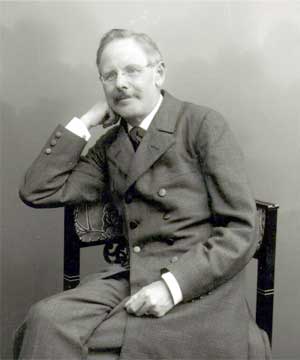 213
Peter Rosegger was an Austrian writer and poet from Krieglach in the province of Styria. He was a son of a mountain farmer and grew up in the woodlands and mountains of Alpl. Rosegger went on to...
213
Peter Rosegger was an Austrian writer and poet from Krieglach in the province of Styria. He was a son of a mountain farmer and grew up in the woodlands and mountains of Alpl. Rosegger went on to...
Franz Schubert
 205
Franz Peter Schubert was an Austrian composer of the late Classical and early Romantic eras. Despite his short life, Schubert left behind a vast oeuvre, including more than 600 secular vocal works,...
205
Franz Peter Schubert was an Austrian composer of the late Classical and early Romantic eras. Despite his short life, Schubert left behind a vast oeuvre, including more than 600 secular vocal works,...
Friedrich Wilhelm Raiffeisen
 191
Friedrich Wilhelm Raiffeisen was a German mayor and cooperative pioneer. Several credit union systems and cooperative banks have been named after Raiffeisen, who pioneered rural credit unions.
191
Friedrich Wilhelm Raiffeisen was a German mayor and cooperative pioneer. Several credit union systems and cooperative banks have been named after Raiffeisen, who pioneered rural credit unions.
Joseph Haydn
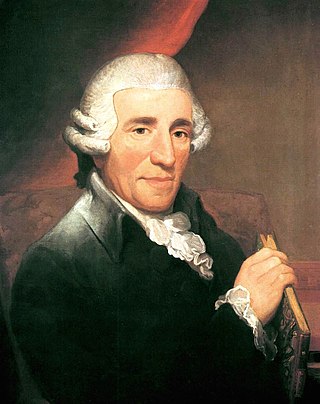 176
Franz Joseph Haydn was an Austrian composer of the Classical period. He was instrumental in the development of chamber music such as the string quartet and piano trio. His contributions to musical...
176
Franz Joseph Haydn was an Austrian composer of the Classical period. He was instrumental in the development of chamber music such as the string quartet and piano trio. His contributions to musical...
Wolfgang Amadeus Mozart
 168
Wolfgang Amadeus Mozart was a prolific and influential composer of the Classical period. Despite his short life, his rapid pace of composition resulted in more than 800 works representing virtually...
168
Wolfgang Amadeus Mozart was a prolific and influential composer of the Classical period. Despite his short life, his rapid pace of composition resulted in more than 800 works representing virtually...
Anton Bruckner
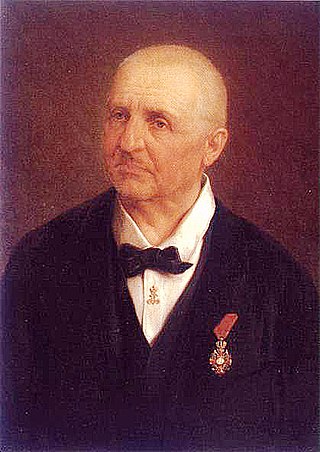 128
Josef Anton Bruckner was an Austrian composer and organist best known for his symphonies and sacred music, which includes Masses, Te Deum and motets. The symphonies are considered emblematic of the...
128
Josef Anton Bruckner was an Austrian composer and organist best known for his symphonies and sacred music, which includes Masses, Te Deum and motets. The symphonies are considered emblematic of the...
Franz Grillparzer
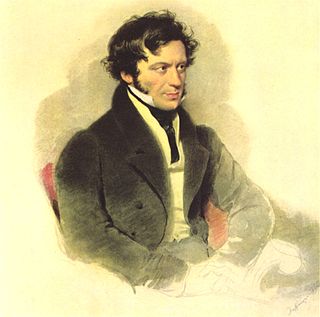 110
Franz Seraphicus Grillparzer was an Austrian writer who was considered to be the leading Austrian dramatist of the 19th century. His plays were and are frequently performed at the famous Burgtheater...
110
Franz Seraphicus Grillparzer was an Austrian writer who was considered to be the leading Austrian dramatist of the 19th century. His plays were and are frequently performed at the famous Burgtheater...
Friedrich Schiller
 109
Johann Christoph Friedrich von Schiller was a German polymath and poet, playwright, historian, philosopher, physician, lawyer. Schiller is considered by most Germans to be Germany's most important...
109
Johann Christoph Friedrich von Schiller was a German polymath and poet, playwright, historian, philosopher, physician, lawyer. Schiller is considered by most Germans to be Germany's most important...
Johann Strauss II
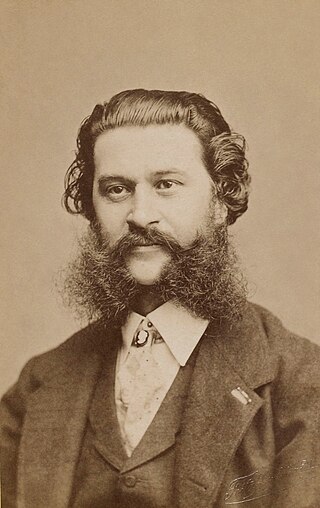 108
Johann Baptist Strauss II, also known as Johann Strauss Jr., the Younger or the Son, was an Austrian composer of light music, particularly dance music and operettas as well as a violinist. He...
108
Johann Baptist Strauss II, also known as Johann Strauss Jr., the Younger or the Son, was an Austrian composer of light music, particularly dance music and operettas as well as a violinist. He...
Hubertus
 97
Hubertus or Hubert was a Christian saint who became the first bishop of Liège in 708 A.D. He is the patron saint of hunters, mathematicians, opticians and metalworkers. Known as the "Apostle of the...
97
Hubertus or Hubert was a Christian saint who became the first bishop of Liège in 708 A.D. He is the patron saint of hunters, mathematicians, opticians and metalworkers. Known as the "Apostle of the...
Franz Lehár
 93
Franz Lehár was an Austro-Hungarian composer. He is mainly known for his operettas, of which the most successful and best known is The Merry Widow.
93
Franz Lehár was an Austro-Hungarian composer. He is mainly known for his operettas, of which the most successful and best known is The Merry Widow.
Ludwig van Beethoven
 92
Ludwig van Beethoven was a German composer and pianist. He is one of the most revered figures in the history of Western music; his works rank among the most performed of the classical music...
92
Ludwig van Beethoven was a German composer and pianist. He is one of the most revered figures in the history of Western music; his works rank among the most performed of the classical music...
Karl Renner
 88
Karl Renner was an Austrian politician and jurist of the Social Democratic Workers' Party of Austria. He is often referred to as the "Father of the Republic" because he led the first government of...
88
Karl Renner was an Austrian politician and jurist of the Social Democratic Workers' Party of Austria. He is often referred to as the "Father of the Republic" because he led the first government of...
Richard Wagner
 86
Wilhelm Richard Wagner was a German composer, theatre director, polemicist, and conductor who is chiefly known for his operas. Unlike most opera composers, Wagner wrote both the libretto and the...
86
Wilhelm Richard Wagner was a German composer, theatre director, polemicist, and conductor who is chiefly known for his operas. Unlike most opera composers, Wagner wrote both the libretto and the...
Andreas Hofer
 81
Andreas Hofer was a Tyrolean innkeeper and drover, who in 1809 became the leader of the Tyrolean Rebellion against the Napoleonic and Bavarian invasion during the War of the Fifth Coalition. He was...
81
Andreas Hofer was a Tyrolean innkeeper and drover, who in 1809 became the leader of the Tyrolean Rebellion against the Napoleonic and Bavarian invasion during the War of the Fifth Coalition. He was...
Franz Liszt
 80
Franz Liszt was a Hungarian composer, virtuoso pianist, conductor and teacher of the Romantic period. With a diverse body of work spanning more than six decades, he is considered to be one of the...
80
Franz Liszt was a Hungarian composer, virtuoso pianist, conductor and teacher of the Romantic period. With a diverse body of work spanning more than six decades, he is considered to be one of the...
Ferdinand Raimund
 80
Ferdinand Raimund was an Austrian actor and dramatist.
80
Ferdinand Raimund was an Austrian actor and dramatist.
Adalbert Stifter
 79
Adalbert Stifter was an Bohemian-Austrian writer, poet, painter, and pedagogue. He was notable for the vivid natural landscapes depicted in his writing and has long been popular in the...
79
Adalbert Stifter was an Bohemian-Austrian writer, poet, painter, and pedagogue. He was notable for the vivid natural landscapes depicted in his writing and has long been popular in the...
Viktor Kaplan
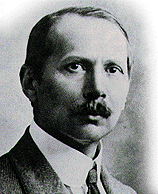 78
Viktor Kaplan was an Austrian engineer and the inventor of the Kaplan turbine.
78
Viktor Kaplan was an Austrian engineer and the inventor of the Kaplan turbine.
Franz Stelzhamer
 77
Franz Stelzhamer war ein österreichischer Dichter und Novellist.
77
Franz Stelzhamer war ein österreichischer Dichter und Novellist.
Ludwig Anzengruber
 72
Ludwig Anzengruber was an Austrian dramatist, novelist and poet. He was born and died in Vienna, Austria.
72
Ludwig Anzengruber was an Austrian dramatist, novelist and poet. He was born and died in Vienna, Austria.
Franz Binder
 71
Franz "Bimbo" Binder was an Austrian football player and coach who played as a forward. Internationally he represented the Austria national football team and the Germany national football team during...
71
Franz "Bimbo" Binder was an Austrian football player and coach who played as a forward. Internationally he represented the Austria national football team and the Germany national football team during...
Nikolaus Lenau
 69
Nikolaus Lenau was the pen name of Nikolaus Franz Niembsch Edler von Strehlenau, a German-language Austrian poet.
69
Nikolaus Lenau was the pen name of Nikolaus Franz Niembsch Edler von Strehlenau, a German-language Austrian poet.
Max Weber
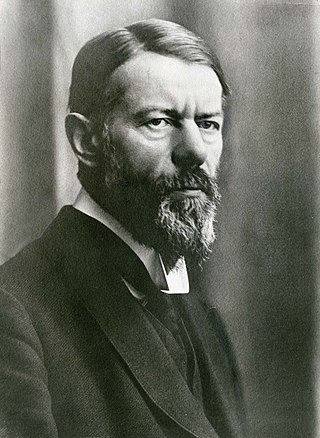 69
Maximilian Karl Emil Weber was a German sociologist, historian, jurist, and political economist who was one of the central figures in the development of sociology and the social sciences more...
69
Maximilian Karl Emil Weber was a German sociologist, historian, jurist, and political economist who was one of the central figures in the development of sociology and the social sciences more...
Josef Ressel
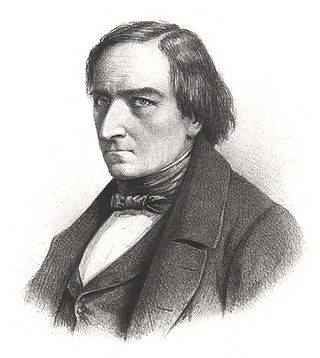 66
Joseph Ludwig Franz Ressel was a Czech-German forester and inventor, who designed one of the first working ship's propellers.
66
Joseph Ludwig Franz Ressel was a Czech-German forester and inventor, who designed one of the first working ship's propellers.
Franz Joseph I of Austria
 65
Franz Joseph I or Francis Joseph I was Emperor of Austria, King of Hungary, and the ruler of the other states of the Habsburg monarchy from 2 December 1848 until his death in 1916. In the early part...
65
Franz Joseph I or Francis Joseph I was Emperor of Austria, King of Hungary, and the ruler of the other states of the Habsburg monarchy from 2 December 1848 until his death in 1916. In the early part...
Johann Wolfgang von Goethe
 64
Johann Wolfgang von Goethe was a German polymath and writer, who is widely regarded as the greatest and most influential writer in the German language. His work has had a profound and wide-ranging...
64
Johann Wolfgang von Goethe was a German polymath and writer, who is widely regarded as the greatest and most influential writer in the German language. His work has had a profound and wide-ranging...
Robert Stolz
 63
Robert Elisabeth Stolz was an Austrian songwriter and conductor as well as a composer of operettas and film music.
63
Robert Elisabeth Stolz was an Austrian songwriter and conductor as well as a composer of operettas and film music.
Theodor Körner (president)
 62
Theodor Körner, Edler von Siegringen was an Austrian military officer and statesman of the Social Democratic Party of Austria. He served as President of Austria from 1951 to 1957 and as Mayor of...
62
Theodor Körner, Edler von Siegringen was an Austrian military officer and statesman of the Social Democratic Party of Austria. He served as President of Austria from 1951 to 1957 and as Mayor of...
Joseph Lanner
 57
Joseph Lanner was an Austrian dance music composer and dance orchestra conductor. He is best remembered as one of the earliest Viennese composers to reform the waltz from a simple peasant dance to...
57
Joseph Lanner was an Austrian dance music composer and dance orchestra conductor. He is best remembered as one of the earliest Viennese composers to reform the waltz from a simple peasant dance to...
Josef Hafner
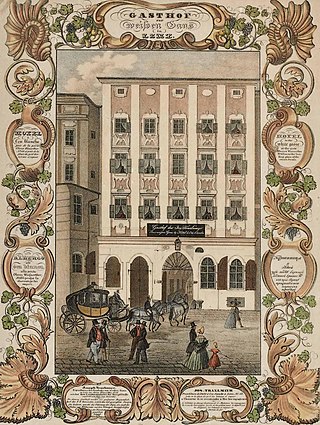 54
Josef Hafner was an Austrian painter and color lithographer.
54
Josef Hafner was an Austrian painter and color lithographer.
Ottokar Kernstock
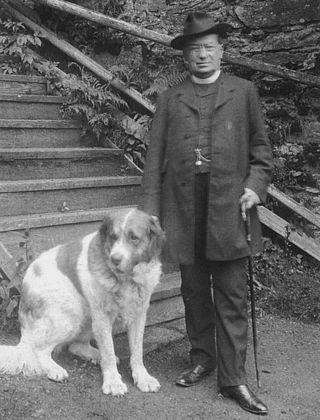 52
Ottokar Kernstock, eigentlich Otto Kernstock war ein österreichischer Dichter, Priester und Augustiner-Chorherr.
52
Ottokar Kernstock, eigentlich Otto Kernstock war ein österreichischer Dichter, Priester und Augustiner-Chorherr.
Saint Anne
 51
According to apocrypha, as well as Christian and Islamic tradition, Saint Anne was the mother of Mary, the wife of Joachim and the maternal grandmother of Jesus. Mary's mother is not named in the...
51
According to apocrypha, as well as Christian and Islamic tradition, Saint Anne was the mother of Mary, the wife of Joachim and the maternal grandmother of Jesus. Mary's mother is not named in the...
Johann Nestroy
 51
Johann Nepomuk Eduard Ambrosius Nestroy was a singer, actor and playwright in the popular Austrian tradition of the Biedermeier period and its immediate aftermath. He participated in the 1848...
51
Johann Nepomuk Eduard Ambrosius Nestroy was a singer, actor and playwright in the popular Austrian tradition of the Biedermeier period and its immediate aftermath. He participated in the 1848...
Friedrich Ludwig Jahn
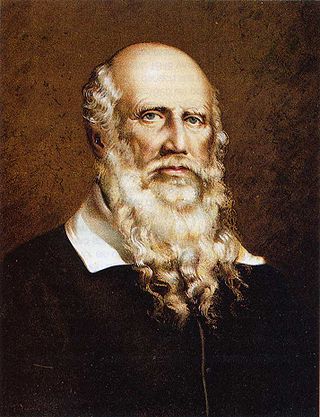 50
Johann Friedrich Ludwig Christoph Jahn was a German gymnastics educator and nationalist whose writing is credited with the founding of the German gymnastics (Turner) movement as well as influencing...
50
Johann Friedrich Ludwig Christoph Jahn was a German gymnastics educator and nationalist whose writing is credited with the founding of the German gymnastics (Turner) movement as well as influencing...
Martin of Tours
 50
Martin of Tours, also known as Martin the Merciful, was the third bishop of Tours. He has become one of the most familiar and recognizable Christian saints in France, heralded as the patron saint of...
50
Martin of Tours, also known as Martin the Merciful, was the third bishop of Tours. He has become one of the most familiar and recognizable Christian saints in France, heralded as the patron saint of...
Franz Xaver Gruber
 48
Franz Xaver Gruber was an Austrian primary school teacher, church organist and composer in the village of Arnsdorf, who is best known for composing the music to "Stille Nacht".
48
Franz Xaver Gruber was an Austrian primary school teacher, church organist and composer in the village of Arnsdorf, who is best known for composing the music to "Stille Nacht".
Carl Michael Ziehrer
 48
Carl Michael Ziehrer was an Austrian composer. In his lifetime, he was one of the fiercest rivals of the Strauss family; most notably Johann Strauss II and Eduard Strauss.
48
Carl Michael Ziehrer was an Austrian composer. In his lifetime, he was one of the fiercest rivals of the Strauss family; most notably Johann Strauss II and Eduard Strauss.
Johann Heinrich Pestalozzi
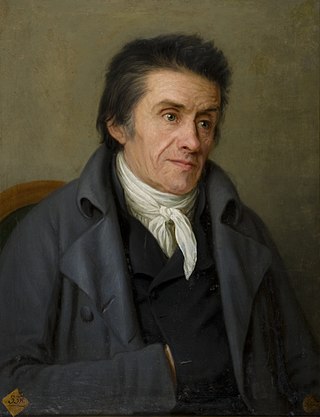 47
Johann Heinrich Pestalozzi was a Swiss pedagogue and educational reformer who exemplified Romanticism in his approach.
47
Johann Heinrich Pestalozzi was a Swiss pedagogue and educational reformer who exemplified Romanticism in his approach.
Carl Zeller
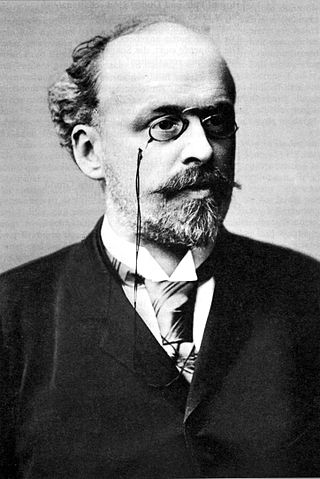 45
Carl Adam Johann Nepomuk Zeller was an Austrian composer of operettas.
45
Carl Adam Johann Nepomuk Zeller was an Austrian composer of operettas.
Robert Hamerling
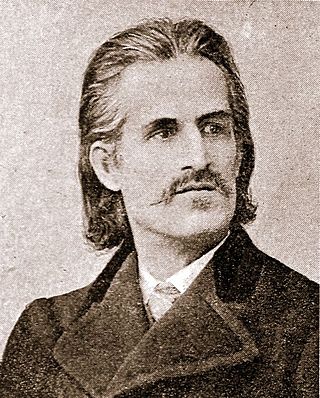 44
Robert Hamerling was an Austrian poet.
44
Robert Hamerling was an Austrian poet.
Johannes Kepler
 43
Johannes Kepler was a German astronomer, mathematician, astrologer, natural philosopher and writer on music. He is a key figure in the 17th-century Scientific Revolution, best known for his laws of...
43
Johannes Kepler was a German astronomer, mathematician, astrologer, natural philosopher and writer on music. He is a key figure in the 17th-century Scientific Revolution, best known for his laws of...
Johannes Brahms
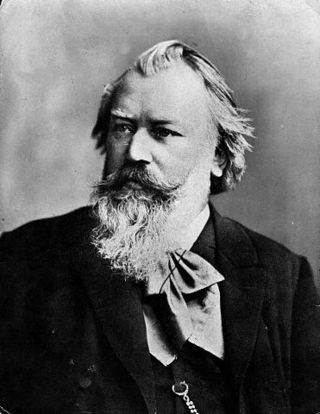 43
Johannes Brahms was a German composer, pianist, and conductor of the mid-Romantic period. Born in Hamburg into a Lutheran family, he spent much of his professional life in Vienna. He is sometimes...
43
Johannes Brahms was a German composer, pianist, and conductor of the mid-Romantic period. Born in Hamburg into a Lutheran family, he spent much of his professional life in Vienna. He is sometimes...
Johannes Gutenberg
 42
Johannes Gensfleisch zur Laden zum Gutenberg was a German inventor and craftsman who introduced letterpress printing to Europe with his movable-type printing press. Though movable type was already in...
42
Johannes Gensfleisch zur Laden zum Gutenberg was a German inventor and craftsman who introduced letterpress printing to Europe with his movable-type printing press. Though movable type was already in...
Josef Madersperger
 42
Josef Madersperger was a tailor. He is one of the inventors of the sewing machine.
42
Josef Madersperger was a tailor. He is one of the inventors of the sewing machine.
Paracelsus
 41
Paracelsus, born Theophrastus von Hohenheim, was a Swiss physician, alchemist, lay theologian, and philosopher of the German Renaissance.
41
Paracelsus, born Theophrastus von Hohenheim, was a Swiss physician, alchemist, lay theologian, and philosopher of the German Renaissance.
Leopold Figl
 39
Leopold Figl was an Austrian politician of the Austrian People's Party and the first Federal Chancellor after World War II. He was also the youngest Federal Chancellor of Austria after the war before...
39
Leopold Figl was an Austrian politician of the Austrian People's Party and the first Federal Chancellor after World War II. He was also the youngest Federal Chancellor of Austria after the war before...
Theodor Billroth
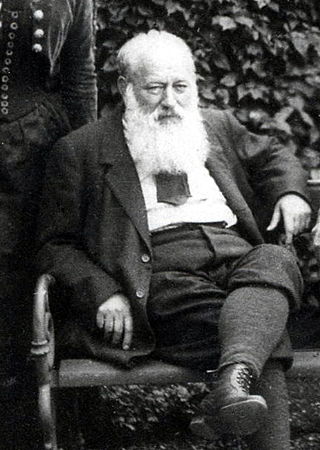 38
Christian Albert Theodor Billroth was a German surgeon and amateur musician.
38
Christian Albert Theodor Billroth was a German surgeon and amateur musician.
Victor Adler
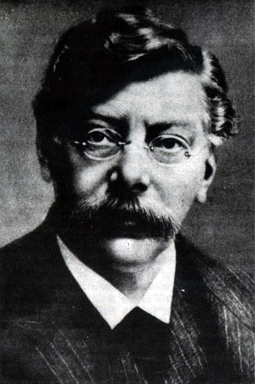 38
Victor Adler was an Austrian politician, a leader of the labour movement and founder of the Social Democratic Workers' Party (SDAP).
38
Victor Adler was an Austrian politician, a leader of the labour movement and founder of the Social Democratic Workers' Party (SDAP).
Stefan Fadinger
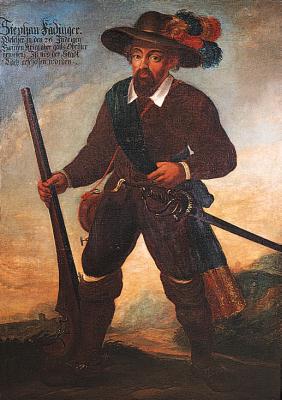 38
Stefan Fadinger was an Austrian farmer who, along with his brother-in-law, Christoph Zeller, was the leader of the peasants during the Peasants' War in Upper Austria. A Protestant, Fadinger opposed...
38
Stefan Fadinger was an Austrian farmer who, along with his brother-in-law, Christoph Zeller, was the leader of the peasants during the Peasants' War in Upper Austria. A Protestant, Fadinger opposed...
Anton Wildgans
 38
Anton Wildgans was an Austrian poet and playwright.
He was nominated for the Nobel Prize in Literature four times.
38
Anton Wildgans was an Austrian poet and playwright.
He was nominated for the Nobel Prize in Literature four times.
Hans Kudlich
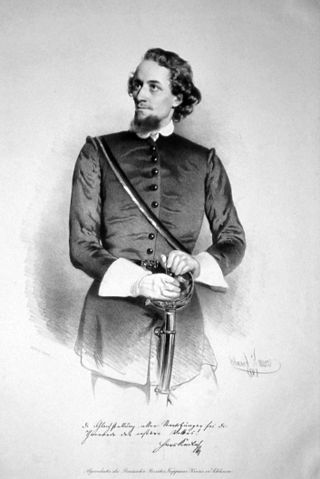 36
Johann "Hans" Kudlich was an Austrian political activist, Austrian legislator, American immigrant, writer, and physician.
36
Johann "Hans" Kudlich was an Austrian political activist, Austrian legislator, American immigrant, writer, and physician.
Ignaz Semmelweis
 36
Ignaz Philipp Semmelweis was a Hungarian physician and scientist of German descent, who was an early pioneer of antiseptic procedures, and was described as the "saviour of mothers". Postpartum...
36
Ignaz Philipp Semmelweis was a Hungarian physician and scientist of German descent, who was an early pioneer of antiseptic procedures, and was described as the "saviour of mothers". Postpartum...
Bertha von Suttner
 36
Bertha Sophie Felicitas Freifrau von Suttner was an Austro-Bohemian noblewoman, pacifist and novelist. In 1905, she became the second female Nobel laureate, the first woman to be awarded the Nobel...
36
Bertha Sophie Felicitas Freifrau von Suttner was an Austro-Bohemian noblewoman, pacifist and novelist. In 1905, she became the second female Nobel laureate, the first woman to be awarded the Nobel...
Hugo Wolf
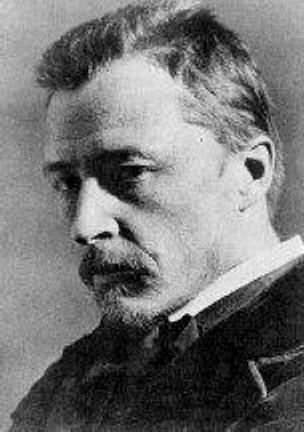 34
Hugo Philipp Jacob Wolf was an Austrian composer, particularly noted for his art songs, or Lieder. He brought to this form a concentrated expressive intensity which was unique in late Romantic music,...
34
Hugo Philipp Jacob Wolf was an Austrian composer, particularly noted for his art songs, or Lieder. He brought to this form a concentrated expressive intensity which was unique in late Romantic music,...
Josef Weinheber
 34
Josef Weinheber was an Austrian lyric poet, narrative writer and essayist.
34
Josef Weinheber was an Austrian lyric poet, narrative writer and essayist.
Ferdinand Hanusch
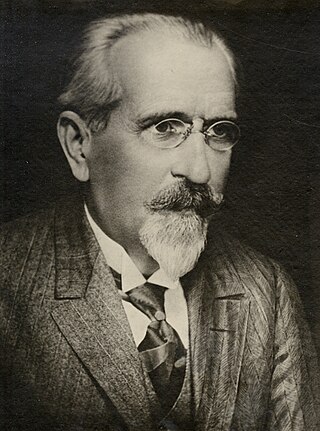 32
Ferdinand Hanusch was an Austrian writer and politician who served as the second Vice-Chancellor of Austria from 7 July to 10 November 1920.
32
Ferdinand Hanusch was an Austrian writer and politician who served as the second Vice-Chancellor of Austria from 7 July to 10 November 1920.
Robert Koch
 32
Heinrich Hermann Robert Koch was a German physician and microbiologist. As the discoverer of the specific causative agents of deadly infectious diseases including tuberculosis, cholera and anthrax,...
32
Heinrich Hermann Robert Koch was a German physician and microbiologist. As the discoverer of the specific causative agents of deadly infectious diseases including tuberculosis, cholera and anthrax,...
Archduke John of Austria
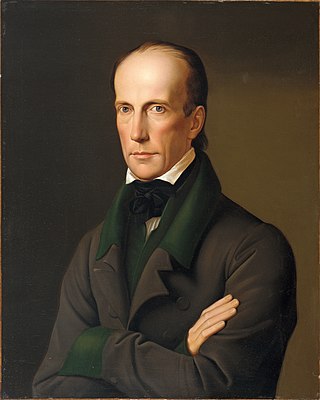 32
Archduke John of Austria, a member of the House of Habsburg-Lorraine, was an Austrian field marshal and imperial regent (Reichsverweser) of the short-lived German Empire during the Revolutions of...
32
Archduke John of Austria, a member of the House of Habsburg-Lorraine, was an Austrian field marshal and imperial regent (Reichsverweser) of the short-lived German Empire during the Revolutions of...
Alfons Petzold
 32
Alfons Maria Petzold, Pseudonym De Profundis, war ein österreichischer Schriftsteller.
32
Alfons Maria Petzold, Pseudonym De Profundis, war ein österreichischer Schriftsteller.
Ferdinand Porsche
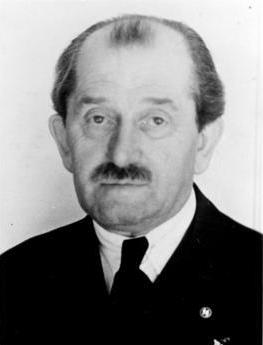 32
Ferdinand Porsche was a German-Bohemian automotive engineer and founder of the Porsche AG. He is best known for creating the first gasoline–electric hybrid vehicle (Lohner–Porsche), the Volkswagen...
32
Ferdinand Porsche was a German-Bohemian automotive engineer and founder of the Porsche AG. He is best known for creating the first gasoline–electric hybrid vehicle (Lohner–Porsche), the Volkswagen...
Rudolf Steiner
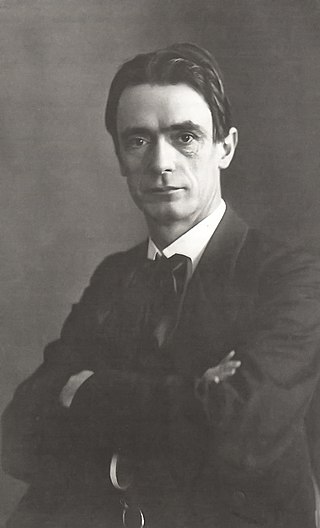 32
Rudolf Joseph Lorenz Steiner was an Austrian occultist, social reformer, architect, esotericist, and claimed clairvoyant. Steiner gained initial recognition at the end of the nineteenth century as a...
32
Rudolf Joseph Lorenz Steiner was an Austrian occultist, social reformer, architect, esotericist, and claimed clairvoyant. Steiner gained initial recognition at the end of the nineteenth century as a...
Arnold Schoenberg
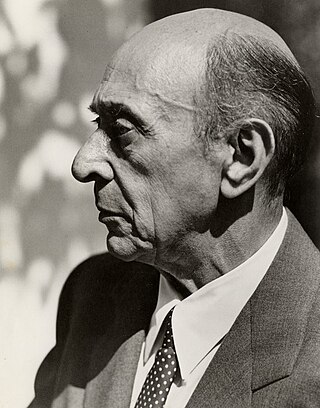 32
Arnold Schoenberg or Schönberg was an Austrian-American composer, music theorist, teacher, writer, and painter. He is widely considered one of the most influential composers of the 20th century. He...
32
Arnold Schoenberg or Schönberg was an Austrian-American composer, music theorist, teacher, writer, and painter. He is widely considered one of the most influential composers of the 20th century. He...
Elizabeth II
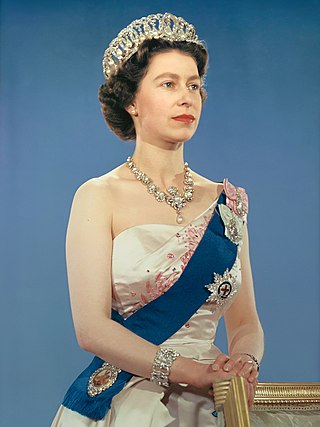 29
Elizabeth II was Queen of the United Kingdom and other Commonwealth realms from 6 February 1952 until her death in 2022. She was queen regnant of 32 sovereign states over the course of her lifetime...
29
Elizabeth II was Queen of the United Kingdom and other Commonwealth realms from 6 February 1952 until her death in 2022. She was queen regnant of 32 sovereign states over the course of her lifetime...
Martin Luther
 29
Martin Luther was a German priest, theologian, author, hymnwriter, professor, and Augustinian friar. Luther was the seminal figure of the Protestant Reformation, and his theological beliefs form the...
29
Martin Luther was a German priest, theologian, author, hymnwriter, professor, and Augustinian friar. Luther was the seminal figure of the Protestant Reformation, and his theological beliefs form the...
Ferdinand Georg Waldmüller
 29
Ferdinand Georg Waldmüller was an Austrian painter and writer. Waldmüller was one of the most important Austrian painters of the Biedermeier period.
29
Ferdinand Georg Waldmüller was an Austrian painter and writer. Waldmüller was one of the most important Austrian painters of the Biedermeier period.
Karl Ritter von Ghega
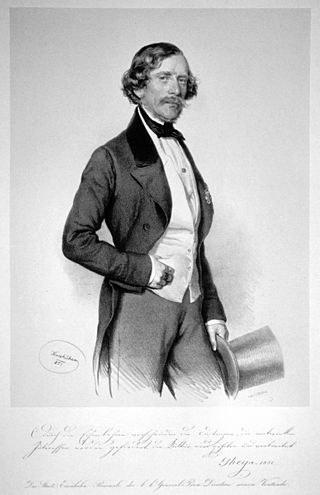 29
Karl Ritter von Ghega or Karl von Ghega was an ethnic Albanian nobleman and the designer of the Semmering Railway from Gloggnitz to Mürzzuschlag. During his time, he was the most prominent of...
29
Karl Ritter von Ghega or Karl von Ghega was an ethnic Albanian nobleman and the designer of the Semmering Railway from Gloggnitz to Mürzzuschlag. During his time, he was the most prominent of...
Alois Negrelli
 29
Nikolaus Alois Maria Vinzenz Negrelli, Ritter von Moldelbe was a Tyrolean civil engineer and railroad pioneer mostly active in parts of the Austrian Empire, Switzerland, Germany and Italy.
29
Nikolaus Alois Maria Vinzenz Negrelli, Ritter von Moldelbe was a Tyrolean civil engineer and railroad pioneer mostly active in parts of the Austrian Empire, Switzerland, Germany and Italy.
Hans Kloepfer
 28
Hans Kloepfer war ein österreichischer Arzt und Schriftsteller, der vor allem durch seine weststeirische Mundartdichtung Popularität erlangte. Kloepfer war 1938 und in den folgenden Jahren expliziter...
28
Hans Kloepfer war ein österreichischer Arzt und Schriftsteller, der vor allem durch seine weststeirische Mundartdichtung Popularität erlangte. Kloepfer war 1938 und in den folgenden Jahren expliziter...
John Reith, 1st Baron Reith
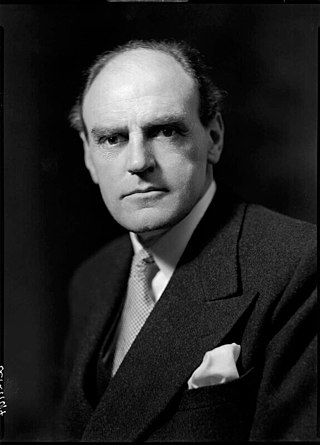 28
John Charles Walsham Reith, 1st Baron Reith, was a Scottish broadcasting executive who established the tradition of independent public service broadcasting in the United Kingdom. In 1922, he was...
28
John Charles Walsham Reith, 1st Baron Reith, was a Scottish broadcasting executive who established the tradition of independent public service broadcasting in the United Kingdom. In 1922, he was...
Leonard of Noblac
 27
Leonard of Noblac, is a Frankish saint closely associated with the town and abbey of Saint-Léonard-de-Noblat, in Haute-Vienne, in the Limousin region of France. He was converted to Christianity along...
27
Leonard of Noblac, is a Frankish saint closely associated with the town and abbey of Saint-Léonard-de-Noblat, in Haute-Vienne, in the Limousin region of France. He was converted to Christianity along...
Rainer Maria Rilke
 27
René Karl Wilhelm Johann Josef Maria Rilke, known as Rainer Maria Rilke, was an Austrian poet and novelist. Acclaimed as an idiosyncratic and expressive poet, he is widely recognized as a significant...
27
René Karl Wilhelm Johann Josef Maria Rilke, known as Rainer Maria Rilke, was an Austrian poet and novelist. Acclaimed as an idiosyncratic and expressive poet, he is widely recognized as a significant...
Johann Bernhard Fischer von Erlach
 27
Johann Bernhard Fischer von Erlach was an Austrian architect, sculptor, engraver, and architectural historian whose Baroque architecture profoundly influenced and shaped the tastes of the Habsburg...
27
Johann Bernhard Fischer von Erlach was an Austrian architect, sculptor, engraver, and architectural historian whose Baroque architecture profoundly influenced and shaped the tastes of the Habsburg...
Julius Raab
 26
Julius Raab was a conservative Austrian politician, who served as Federal Chancellor of Austria from 1953 to 1961. Raab steered Allied-occupied Austria to independence, when he negotiated and signed...
26
Julius Raab was a conservative Austrian politician, who served as Federal Chancellor of Austria from 1953 to 1961. Raab steered Allied-occupied Austria to independence, when he negotiated and signed...
Albrecht Dürer
 26
Albrecht Dürer, sometimes spelled in English as Durer, was a German painter, printmaker, and theorist of the German Renaissance. Born in Nuremberg, Dürer established his reputation and influence...
26
Albrecht Dürer, sometimes spelled in English as Durer, was a German painter, printmaker, and theorist of the German Renaissance. Born in Nuremberg, Dürer established his reputation and influence...
Albert Schweitzer
 25
Ludwig Philipp Albert Schweitzer was an Alsatian polymath. He was a theologian, organist, musicologist, writer, humanitarian, philosopher, and physician. A Lutheran minister, Schweitzer challenged...
25
Ludwig Philipp Albert Schweitzer was an Alsatian polymath. He was a theologian, organist, musicologist, writer, humanitarian, philosopher, and physician. A Lutheran minister, Schweitzer challenged...
Prince Eugene of Savoy
 24
Prince Eugene Francis of Savoy-Carignano, better known as Prince Eugene, was a field marshal in the Army of the Holy Roman Empire and of the Austrian Habsburg dynasty during the 17th and 18th...
24
Prince Eugene Francis of Savoy-Carignano, better known as Prince Eugene, was a field marshal in the Army of the Holy Roman Empire and of the Austrian Habsburg dynasty during the 17th and 18th...
Gotthold Ephraim Lessing
 24
Gotthold Ephraim Lessing was a German philosopher, dramatist, publicist and art critic, and a representative of the Enlightenment era. His plays and theoretical writings substantially influenced the...
24
Gotthold Ephraim Lessing was a German philosopher, dramatist, publicist and art critic, and a representative of the Enlightenment era. His plays and theoretical writings substantially influenced the...
Josef Schöffel
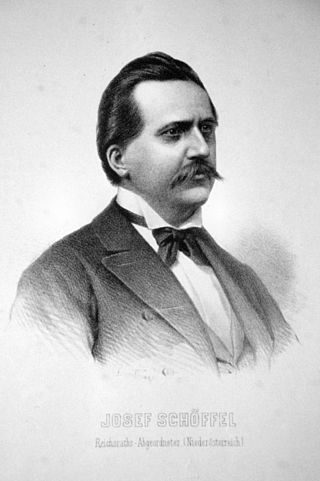 24
Josef Schöffel war ein österreichischer Journalist, Politiker, Heimat- und Naturschützer.
24
Josef Schöffel war ein österreichischer Journalist, Politiker, Heimat- und Naturschützer.
Siegfried Marcus
 24
Siegfried Samuel Marcus was a German inventor. Marcus was born of Jewish descent in Malchin, in the Grand Duchy of Mecklenburg-Schwerin. He made the first petrol-powered vehicle in 1864, while living...
24
Siegfried Samuel Marcus was a German inventor. Marcus was born of Jewish descent in Malchin, in the Grand Duchy of Mecklenburg-Schwerin. He made the first petrol-powered vehicle in 1864, while living...
Archduke Maximilian of Austria (1895–1952)
 23
Archduke Maximilian of Austria was a member of the House of Habsburg-Lorraine and the younger brother of the Emperor Charles I of Austria.
23
Archduke Maximilian of Austria was a member of the House of Habsburg-Lorraine and the younger brother of the Emperor Charles I of Austria.
Archduke Rainer Ferdinand of Austria
 23
Archduke Rainer Ferdinand Maria Johann Evangelist Franz Ignaz of Austria was an Austrian prince and politician who served as Minister-President of Austria from 1861 to 1865. Later in his life, he...
23
Archduke Rainer Ferdinand Maria Johann Evangelist Franz Ignaz of Austria was an Austrian prince and politician who served as Minister-President of Austria from 1861 to 1865. Later in his life, he...
Walther von der Vogelweide
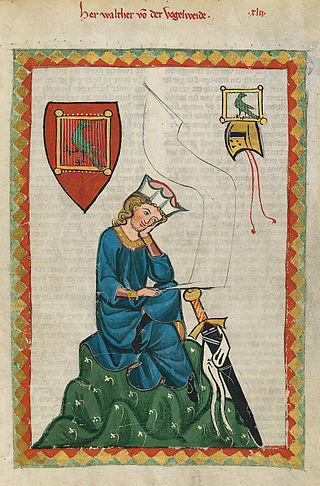 23
Walther von der Vogelweide was a Minnesänger who composed and performed love-songs and political songs ("Sprüche") in Middle High German. Walther has been described as the greatest German lyrical...
23
Walther von der Vogelweide was a Minnesänger who composed and performed love-songs and political songs ("Sprüche") in Middle High German. Walther has been described as the greatest German lyrical...
Karl Aigen
 23
Karl Josef Aigen was a landscape painter, born at Olomouc.
23
Karl Josef Aigen was a landscape painter, born at Olomouc.
Esterházy
 23
The House of Esterházy, also spelled Eszterházy, is a Hungarian noble family with origins in the Middle Ages. From the 17th century, the Esterházys were the greatest landowner magnates of the Kingdom...
23
The House of Esterházy, also spelled Eszterházy, is a Hungarian noble family with origins in the Middle Ages. From the 17th century, the Esterházys were the greatest landowner magnates of the Kingdom...
Maria Theresa
 22
Maria Theresa was ruler of the Habsburg dominions from 1740 until her death in 1780, and the only woman to hold the position suo jure. She was the sovereign of Austria, Hungary, Croatia, Bohemia,...
22
Maria Theresa was ruler of the Habsburg dominions from 1740 until her death in 1780, and the only woman to hold the position suo jure. She was the sovereign of Austria, Hungary, Croatia, Bohemia,...
Saint Peter
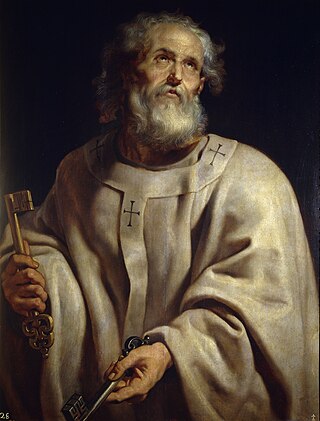 22
Saint Peter, also known as Peter the Apostle, Simon Peter, Simeon, Simon, or Cephas, was one of the Twelve Apostles of Jesus Christ and one of the first leaders of the early Christian Church. He...
22
Saint Peter, also known as Peter the Apostle, Simon Peter, Simeon, Simon, or Cephas, was one of the Twelve Apostles of Jesus Christ and one of the first leaders of the early Christian Church. He...
Werner von Siemens
 22
Ernst Werner Siemens was a German electrical engineer, inventor and industrialist. Siemens's name has been adopted as the SI unit of electrical conductance, the siemens. He founded the electrical and...
22
Ernst Werner Siemens was a German electrical engineer, inventor and industrialist. Siemens's name has been adopted as the SI unit of electrical conductance, the siemens. He founded the electrical and...
Peter Mitterhofer
 22
Peter Mitterhofer war ein österreichischer Zimmermann und als Erfinder und Konstrukteur verschiedener früher Schreibmaschinen bekannt. Technische Details seiner Entwicklungen ließen Christopher...
22
Peter Mitterhofer war ein österreichischer Zimmermann und als Erfinder und Konstrukteur verschiedener früher Schreibmaschinen bekannt. Technische Details seiner Entwicklungen ließen Christopher...
Gustav Mahler
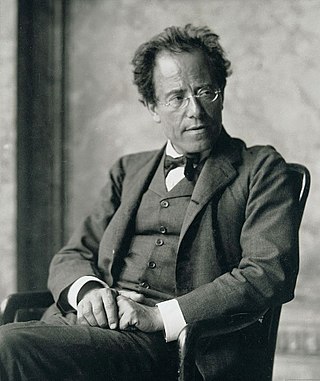 22
Gustav Mahler was an Austro-Bohemian Romantic composer, and one of the leading conductors of his generation. As a composer he acted as a bridge between the 19th-century Austro-German tradition and...
22
Gustav Mahler was an Austro-Bohemian Romantic composer, and one of the leading conductors of his generation. As a composer he acted as a bridge between the 19th-century Austro-German tradition and...
Ludwig Ganghofer
 22
Ludwig Ganghofer was a German writer. He has been called the "most-adapted author in the history of German cinema", as many of his novels were turned into films.
22
Ludwig Ganghofer was a German writer. He has been called the "most-adapted author in the history of German cinema", as many of his novels were turned into films.
Anthony the Great
 22
Anthony the Great was a Christian monk from Egypt, revered since his death as a saint. He is distinguished from other saints named Anthony, such as Anthony of Padua, by various epithets: Anthony of...
22
Anthony the Great was a Christian monk from Egypt, revered since his death as a saint. He is distinguished from other saints named Anthony, such as Anthony of Padua, by various epithets: Anthony of...
Rudolf Diesel
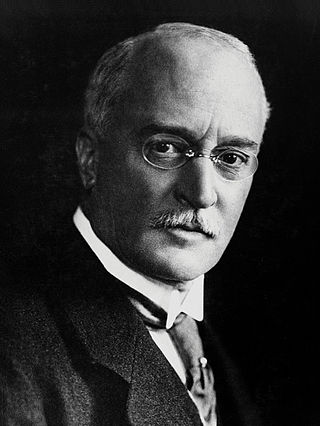 22
Rudolf Christian Karl Diesel was a German inventor and mechanical engineer who is famous for having invented the Diesel engine, which burns Diesel fuel; both are named after him.
22
Rudolf Christian Karl Diesel was a German inventor and mechanical engineer who is famous for having invented the Diesel engine, which burns Diesel fuel; both are named after him.
Hippolytus of Rome
 21
Hippolytus of Rome was a Bishop of Rome and one of the most important second-third century Christian theologians, whose provenance, identity and corpus remain elusive to scholars and historians....
21
Hippolytus of Rome was a Bishop of Rome and one of the most important second-third century Christian theologians, whose provenance, identity and corpus remain elusive to scholars and historians....
Josef Hyrtl
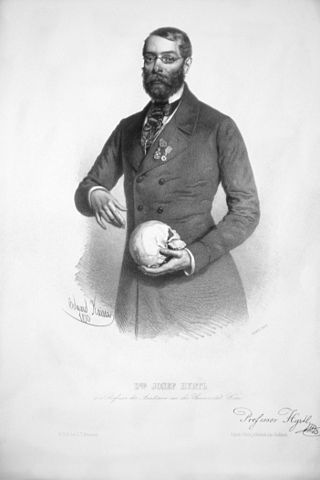 21
Josef Hyrtl was an Austrian anatomist.
21
Josef Hyrtl was an Austrian anatomist.
Wilhelm Kienzl
Caesar von Hofacker
 21
Caesar von Hofacker was a German Luftwaffe Lieutenant Colonel and member of the 20 July plot against Adolf Hitler.
21
Caesar von Hofacker was a German Luftwaffe Lieutenant Colonel and member of the 20 July plot against Adolf Hitler.
Joseph Radetzky von Radetz
 20
Johann Josef Wenzel Anton Franz Karl, Graf Radetzky von Radetz was a Czech nobleman and Austrian field marshal. He served as chief of the general staff in the Habsburg monarchy during the later...
20
Johann Josef Wenzel Anton Franz Karl, Graf Radetzky von Radetz was a Czech nobleman and Austrian field marshal. He served as chief of the general staff in the Habsburg monarchy during the later...
Karl Heinrich Waggerl
 20
Karl Heinrich Waggerl, geboren als Karl Waggerl, war ein österreichischer Schriftsteller.
20
Karl Heinrich Waggerl, geboren als Karl Waggerl, war ein österreichischer Schriftsteller.
Egon Schiele
 20
Egon Leo Adolf Ludwig Schiele was an Austrian Expressionist painter. His work is noted for its intensity and its raw sexuality, and for the many self-portraits the artist produced, including nude...
20
Egon Leo Adolf Ludwig Schiele was an Austrian Expressionist painter. His work is noted for its intensity and its raw sexuality, and for the many self-portraits the artist produced, including nude...
Carl Millöcker
 19
Carl Joseph Millöcker, was an Austrian composer of operettas and a conductor.
He was born in Vienna, where he studied the flute at the Vienna Conservatory. While holding various conducting posts in...
19
Carl Joseph Millöcker, was an Austrian composer of operettas and a conductor.
He was born in Vienna, where he studied the flute at the Vienna Conservatory. While holding various conducting posts in...
Igo Etrich
 19
Ignaz "Igo" Etrich was an Austrian flight pioneer, pilot and fixed-wing aircraft developer.
19
Ignaz "Igo" Etrich was an Austrian flight pioneer, pilot and fixed-wing aircraft developer.
Adolf Pichler
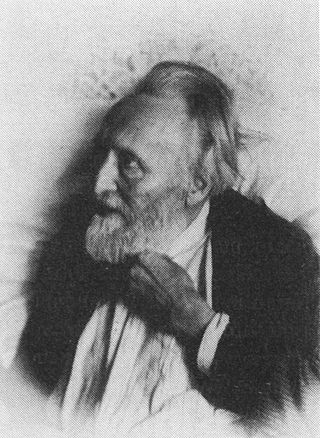 19
Adolf Pichler war ein österreichischer Schriftsteller und Naturwissenschaftler.
19
Adolf Pichler war ein österreichischer Schriftsteller und Naturwissenschaftler.
Franz König
 19
Franz König was an Austrian Cardinal of the Catholic Church. He served as archbishop of Vienna from 1956 to 1985, and was elevated to the cardinalate in 1958. The last surviving cardinal elevated by...
19
Franz König was an Austrian Cardinal of the Catholic Church. He served as archbishop of Vienna from 1956 to 1985, and was elevated to the cardinalate in 1958. The last surviving cardinal elevated by...
Franz Conrad von Hötzendorf
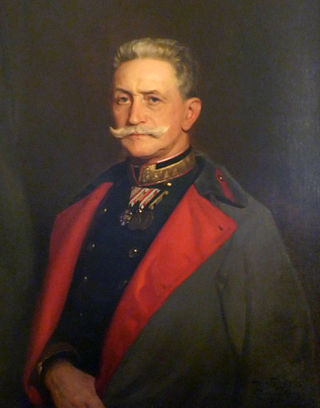 18
Franz Xaver Josef Conrad von Hötzendorf, sometimes anglicised as Hoetzendorf, was an Austrian general who played a central role in World War I. He served as K.u.k. Feldmarschall and Chief of the...
18
Franz Xaver Josef Conrad von Hötzendorf, sometimes anglicised as Hoetzendorf, was an Austrian general who played a central role in World War I. He served as K.u.k. Feldmarschall and Chief of the...
Wolf Huber
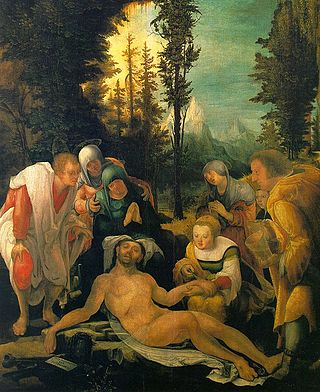 18
Wolf Huber was an Austrian- German painter, printmaker, and architect, who worked in Passau, Germany for most of his life as a leading member of the Danube school.
18
Wolf Huber was an Austrian- German painter, printmaker, and architect, who worked in Passau, Germany for most of his life as a leading member of the Danube school.
Adolf Schärf
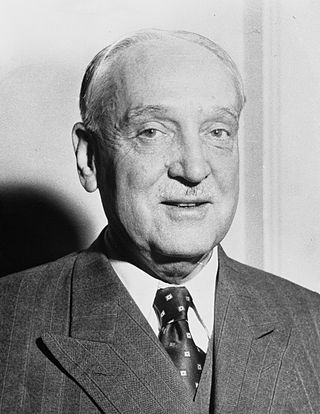 18
Adolf Schärf was an Austrian politician of the Socialist Party of Austria (SPÖ). He served as Vice-Chancellor from 1945 to 1957 and as President of Austria from 1957 until his death.
18
Adolf Schärf was an Austrian politician of the Socialist Party of Austria (SPÖ). He served as Vice-Chancellor from 1945 to 1957 and as President of Austria from 1957 until his death.
Hermann Gmeiner
 18
Hermann Gmeiner was an Austrian philanthropist and the founder of SOS Children's Villages.
18
Hermann Gmeiner was an Austrian philanthropist and the founder of SOS Children's Villages.
Stefan Zweig
 18
Stefan Zweig was an Austrian writer. At the height of his literary career, in the 1920s and 1930s, he was one of the most widely translated and popular writers in the world.
18
Stefan Zweig was an Austrian writer. At the height of his literary career, in the 1920s and 1930s, he was one of the most widely translated and popular writers in the world.
Sebastian Kneipp
 18
Sebastian Kneipp was a German Catholic priest and one of the forefathers of the naturopathic movement. He is most commonly associated with the "Kneipp Cure" form of hydrotherapy, the application of...
18
Sebastian Kneipp was a German Catholic priest and one of the forefathers of the naturopathic movement. He is most commonly associated with the "Kneipp Cure" form of hydrotherapy, the application of...
Albert, Duke of Prussia
 17
Albert of Prussia was a German prince who was the 37th grand master of the Teutonic Knights and, after converting to Lutheranism, became the first ruler of the Duchy of Prussia, the secularized state...
17
Albert of Prussia was a German prince who was the 37th grand master of the Teutonic Knights and, after converting to Lutheranism, became the first ruler of the Duchy of Prussia, the secularized state...
Adolph Kolping
 17
Adolph Kolping was a German Catholic priest and the founder of the Kolping Association. He led the movement for providing and promoting social support for workers in industrialized cities while also...
17
Adolph Kolping was a German Catholic priest and the founder of the Kolping Association. He led the movement for providing and promoting social support for workers in industrialized cities while also...
James the Great
 17
James the Great was one of the Twelve Apostles of Jesus. According to the New Testament, he was the second of the apostles to die, and the first to be martyred. Saint James is the patron saint of...
17
James the Great was one of the Twelve Apostles of Jesus. According to the New Testament, he was the second of the apostles to die, and the first to be martyred. Saint James is the patron saint of...
Franz Jonas
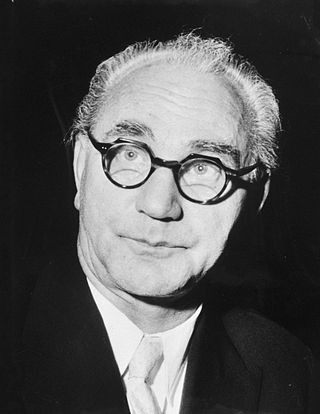 16
Franz Josef Jonas was an Austrian politician who served as the President of Austria between 1965 and 1974.
16
Franz Josef Jonas was an Austrian politician who served as the President of Austria between 1965 and 1974.
Robert Schumann
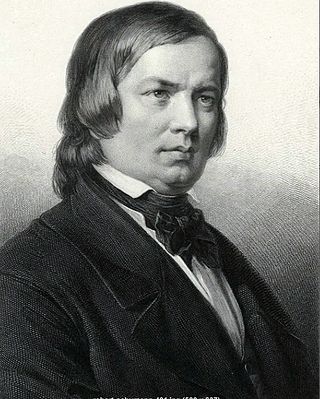 16
Robert Schumann was a German composer, pianist, and influential music critic. He is widely regarded as one of the greatest composers of the Romantic era. Schumann left the study of law, intending to...
16
Robert Schumann was a German composer, pianist, and influential music critic. He is widely regarded as one of the greatest composers of the Romantic era. Schumann left the study of law, intending to...
Marie von Ebner-Eschenbach
 16
Countess Marie von Ebner-Eschenbach was an Austrian writer. Noted for her psychological novels, she is regarded as one of the most important German-language writers of the latter portion of the 19th...
16
Countess Marie von Ebner-Eschenbach was an Austrian writer. Noted for her psychological novels, she is regarded as one of the most important German-language writers of the latter portion of the 19th...
Franz Michael Felder
 16
Franz Michael Felder was a social reformer, author and farmer from Vorarlberg (Austria).
16
Franz Michael Felder was a social reformer, author and farmer from Vorarlberg (Austria).
Gustav Klimt
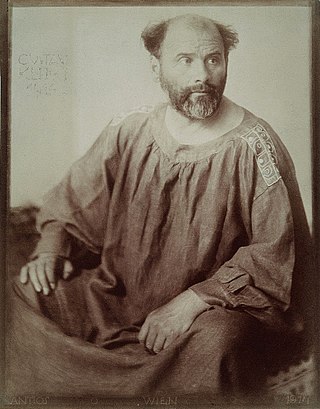 16
Gustav Klimt was an Austrian symbolist painter and one of the most prominent members of the Vienna Secession movement. Klimt is noted for his paintings, murals, sketches, and other objets d'art....
16
Gustav Klimt was an Austrian symbolist painter and one of the most prominent members of the Vienna Secession movement. Klimt is noted for his paintings, murals, sketches, and other objets d'art....
Arthur Schnitzler
 16
Arthur Schnitzler was an Austrian author and dramatist. He is considered one of the most significant representatives of the Viennese Modernism. Schnitzler’s works, which include psychological dramas...
16
Arthur Schnitzler was an Austrian author and dramatist. He is considered one of the most significant representatives of the Viennese Modernism. Schnitzler’s works, which include psychological dramas...
Hans Sachs
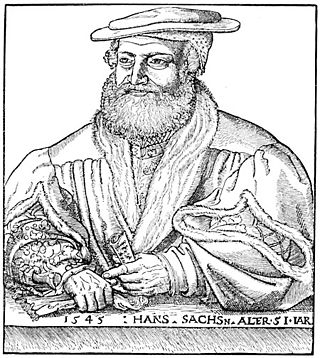 15
Hans Sachs was a German Meistersinger ("mastersinger"), poet, playwright, and shoemaker.
15
Hans Sachs was a German Meistersinger ("mastersinger"), poet, playwright, and shoemaker.
Thomas Edison
 15
Thomas Alva Edison was an American inventor and businessman. He developed many devices in fields such as electric power generation, mass communication, sound recording, and motion pictures. These...
15
Thomas Alva Edison was an American inventor and businessman. He developed many devices in fields such as electric power generation, mass communication, sound recording, and motion pictures. These...
Carl Auer von Welsbach
 15
Carl Auer von Welsbach, who received the Austrian noble title of Freiherr Auer von Welsbach in 1901, was an Austrian scientist and inventor, who separated didymium into the elements neodymium and...
15
Carl Auer von Welsbach, who received the Austrian noble title of Freiherr Auer von Welsbach in 1901, was an Austrian scientist and inventor, who separated didymium into the elements neodymium and...
Konrad Lorenz
 15
Konrad Zacharias Lorenz was an Austrian zoologist, ethologist, and ornithologist. He shared the 1973 Nobel Prize in Physiology or Medicine with Nikolaas Tinbergen and Karl von Frisch. He is often...
15
Konrad Zacharias Lorenz was an Austrian zoologist, ethologist, and ornithologist. He shared the 1973 Nobel Prize in Physiology or Medicine with Nikolaas Tinbergen and Karl von Frisch. He is often...
Johann Böhm
 14
Johann Böhm was a German Bohemian chemist who focused on photochemistry and radiography. The aluminum-containing mineral boehmite was named after him.
14
Johann Böhm was a German Bohemian chemist who focused on photochemistry and radiography. The aluminum-containing mineral boehmite was named after him.
Siegfried Ludwig
 14
Siegfried Ludwig was an Austrian politician and Governor of Lower Austria from 1981 to 1992.
14
Siegfried Ludwig was an Austrian politician and Governor of Lower Austria from 1981 to 1992.
Oskar Helmer
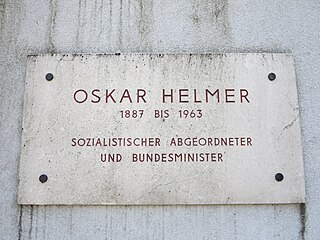 14
Oskar Helmer (1887-1963) was an Austrian printer and social-democrat party politician. He served as the Minister of the Interior from 1945.
14
Oskar Helmer (1887-1963) was an Austrian printer and social-democrat party politician. He served as the Minister of the Interior from 1945.
Franz Keim
 14
Franz Keim war ein österreichischer Schriftsteller.
14
Franz Keim war ein österreichischer Schriftsteller.
Paula Grogger
 14
Paula Grogger was an Austrian writer.
14
Paula Grogger was an Austrian writer.
Daniel Paul Schreber
 14
Daniel Paul Schreber was a German judge who was famous for his personal account of his own experience with schizophrenia. Schreber experienced three distinct periods of acute mental illness. The...
14
Daniel Paul Schreber was a German judge who was famous for his personal account of his own experience with schizophrenia. Schreber experienced three distinct periods of acute mental illness. The...
Otto Glöckel
 14
Otto Glöckel social-democratic politician and school-reformer during the First Austrian Republic. First Minister of Education during the First Austrian Republic from April 1919 to October 1920.
14
Otto Glöckel social-democratic politician and school-reformer during the First Austrian Republic. First Minister of Education during the First Austrian Republic from April 1919 to October 1920.
Josef Friedrich Perkonig
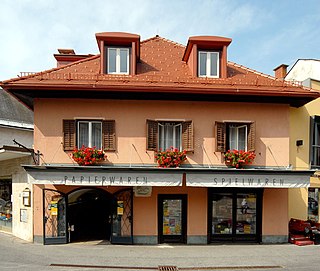 14
Josef Friedrich Perkonig war ein österreichischer Erzähler, Dramatiker, Autor von Hör- und Fernsehspielen, Filmproduzent, Lehrer, später Professor an der Lehrerbildungsanstalt in Klagenfurt und...
14
Josef Friedrich Perkonig war ein österreichischer Erzähler, Dramatiker, Autor von Hör- und Fernsehspielen, Filmproduzent, Lehrer, später Professor an der Lehrerbildungsanstalt in Klagenfurt und...
Hermann Bahr
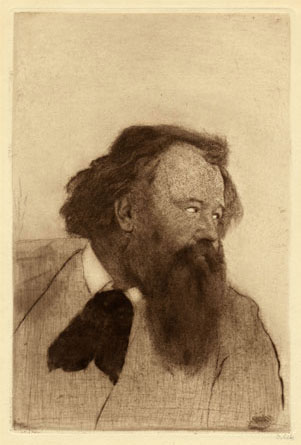 13
Hermann Anastas Bahr was an Austrian writer, playwright, director, and critic.
13
Hermann Anastas Bahr was an Austrian writer, playwright, director, and critic.
Immanuel Kant
 13
Immanuel Kant was a German philosopher and one of the central Enlightenment thinkers. Born in Königsberg, Kant's comprehensive and systematic works in epistemology, metaphysics, ethics, and...
13
Immanuel Kant was a German philosopher and one of the central Enlightenment thinkers. Born in Königsberg, Kant's comprehensive and systematic works in epistemology, metaphysics, ethics, and...
Fritz Pregl
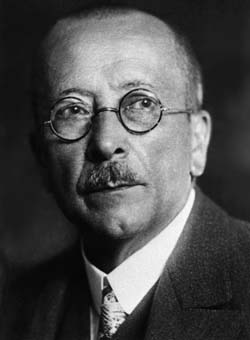 13
Fritz Pregl, was a Slovenian-Austrian chemist and physician from a mixed Slovene-German-speaking background. He won the Nobel Prize in Chemistry in 1923 for making important contributions to...
13
Fritz Pregl, was a Slovenian-Austrian chemist and physician from a mixed Slovene-German-speaking background. He won the Nobel Prize in Chemistry in 1923 for making important contributions to...
Saint Nicholas
 13
Saint Nicholas of Myra, also known as Nicholas of Bari, was an early Christian bishop of Greek descent from the maritime city of Patara in Anatolia during the time of the Roman Empire. Because of the...
13
Saint Nicholas of Myra, also known as Nicholas of Bari, was an early Christian bishop of Greek descent from the maritime city of Patara in Anatolia during the time of the Roman Empire. Because of the...
Leopold Kunschak
 13
Leopold Kunschak war ein österreichischer Politiker (CS/VF/ÖVP).
13
Leopold Kunschak war ein österreichischer Politiker (CS/VF/ÖVP).
Gottlieb Daimler
 13
Gottlieb Wilhelm Daimler was a German engineer, industrial designer and industrialist born in Schorndorf, in what is now Germany. He was a pioneer of internal-combustion engines and automobile...
13
Gottlieb Wilhelm Daimler was a German engineer, industrial designer and industrialist born in Schorndorf, in what is now Germany. He was a pioneer of internal-combustion engines and automobile...
Hans Czettel
 13
Hans Czettel war ein österreichischer Politiker (SPÖ).
13
Hans Czettel war ein österreichischer Politiker (SPÖ).
Peter Anich
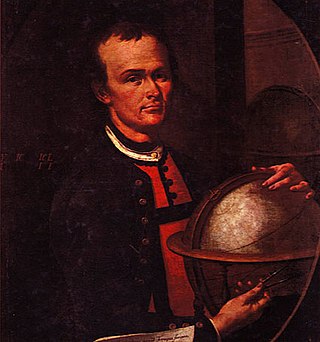 12
Peter Anich (1723–1766) was an Austrian cartographer and maker of mathematical instruments.
12
Peter Anich (1723–1766) was an Austrian cartographer and maker of mathematical instruments.
Karl Schönherr
 12
Karl Schönherr was an Austrian writer of Austrian Heimat themes.
12
Karl Schönherr was an Austrian writer of Austrian Heimat themes.
Moritz von Schwind
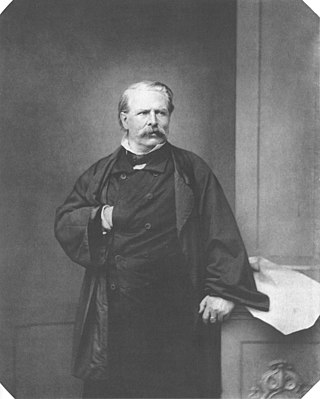 12
Moritz von Schwind was an Austrian painter, born in Vienna. Schwind's genius was lyrical—he drew inspiration from chivalry, folklore, and the songs of the people. Schwind died in Pöcking in Bavaria,...
12
Moritz von Schwind was an Austrian painter, born in Vienna. Schwind's genius was lyrical—he drew inspiration from chivalry, folklore, and the songs of the people. Schwind died in Pöcking in Bavaria,...
Clemens Holzmeister
 12
Clemens Holzmeister was a prominent Austrian architect and stage designer of the early twentieth century. The Austrian Academy of Fine Arts listed his life's work as containing 673 projects. He was...
12
Clemens Holzmeister was a prominent Austrian architect and stage designer of the early twentieth century. The Austrian Academy of Fine Arts listed his life's work as containing 673 projects. He was...
Sigmund Freud
 12
Sigmund Freud was an Austrian neurologist and the founder of psychoanalysis, a clinical method for evaluating and treating pathologies seen as originating from conflicts in the psyche, through...
12
Sigmund Freud was an Austrian neurologist and the founder of psychoanalysis, a clinical method for evaluating and treating pathologies seen as originating from conflicts in the psyche, through...
Paul Troger
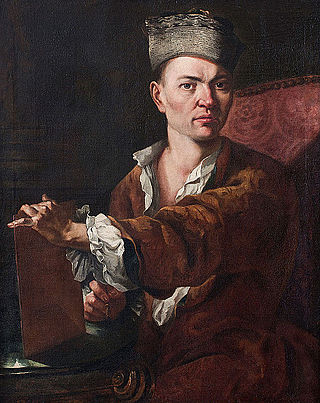 12
Paul Troger was an Austrian painter, draughtsman, and printmaker of the late Baroque period. Troger's illusionistic ceiling paintings in fresco are notable for their dramatic vitality of movement and...
12
Paul Troger was an Austrian painter, draughtsman, and printmaker of the late Baroque period. Troger's illusionistic ceiling paintings in fresco are notable for their dramatic vitality of movement and...
Robert Musil
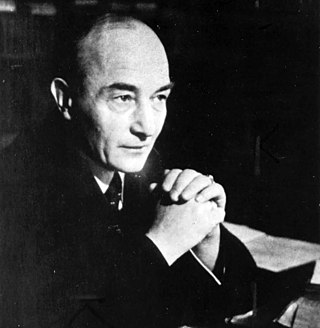 12
Robert Musil was an Austrian philosophical writer. His unfinished novel, The Man Without Qualities, is generally considered to be one of the most important and influential modernist novels.
12
Robert Musil was an Austrian philosophical writer. His unfinished novel, The Man Without Qualities, is generally considered to be one of the most important and influential modernist novels.
Max Mell
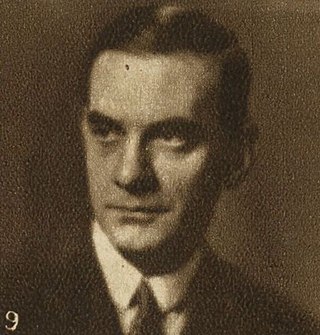 12
Max Mell (1882–1971) was an Austrian writer. He wrote plays, novels and screenplays. He was born in Maribor, then part of the Austrian Empire but now in Slovenia. He studied at Vienna University, and...
12
Max Mell (1882–1971) was an Austrian writer. He wrote plays, novels and screenplays. He was born in Maribor, then part of the Austrian Empire but now in Slovenia. He studied at Vienna University, and...
Richard Billinger
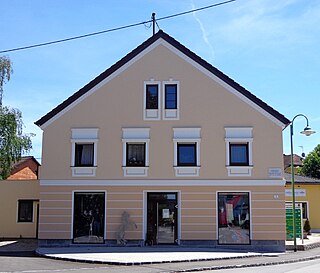 12
Richard Billinger war ein österreichischer Schriftsteller. Sein Werk kennzeichnet den Wandel vom naturalistischen Volksstück zur mythisch-religiösen Darstellung dämonischer Naturkräfte. Es ist stark...
12
Richard Billinger war ein österreichischer Schriftsteller. Sein Werk kennzeichnet den Wandel vom naturalistischen Volksstück zur mythisch-religiösen Darstellung dämonischer Naturkräfte. Es ist stark...
Johann Puch
 11
Johann Puch was a Slovene inventor and mechanic who went on to become the founder of the Austrian Puch automobile plants, then one of the most significant vehicle producers in Europe.
11
Johann Puch was a Slovene inventor and mechanic who went on to become the founder of the Austrian Puch automobile plants, then one of the most significant vehicle producers in Europe.
Hugo von Hofmannsthal
 11
Hugo Laurenz August Hofmann von Hofmannsthal was an Austrian novelist, librettist, poet, dramatist, narrator, and essayist.
11
Hugo Laurenz August Hofmann von Hofmannsthal was an Austrian novelist, librettist, poet, dramatist, narrator, and essayist.
Heinrich von Handel-Mazzetti
 11
Heinrich Raphael Eduard Freiherr von Handel-Mazzetti was an Austrian botanist best known for his monograph of dandelions, many publications on the flora of China, and botanical explorations of that...
11
Heinrich Raphael Eduard Freiherr von Handel-Mazzetti was an Austrian botanist best known for his monograph of dandelions, many publications on the flora of China, and botanical explorations of that...
Josef Reichl (Schriftsteller)
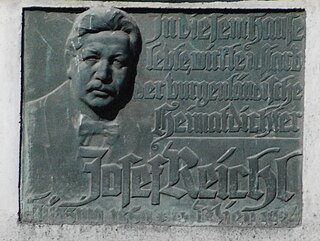 11
Josef Reichl war österreichischer Dialektautor und Heimatdichter.
11
Josef Reichl war österreichischer Dialektautor und Heimatdichter.
Nicolaus Copernicus
 10
Nicolaus Copernicus was a Renaissance polymath, active as a mathematician, astronomer, and Catholic canon, who formulated a model of the universe that placed the Sun rather than Earth at its center....
10
Nicolaus Copernicus was a Renaissance polymath, active as a mathematician, astronomer, and Catholic canon, who formulated a model of the universe that placed the Sun rather than Earth at its center....
Erwin Schrödinger
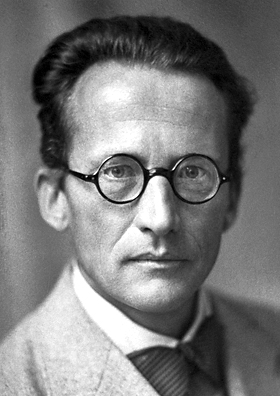 10
Erwin Rudolf Josef Alexander Schrödinger, sometimes written as Schroedinger or Schrodinger, was a Nobel Prize–winning Austrian and naturalized Irish physicist who developed fundamental results in...
10
Erwin Rudolf Josef Alexander Schrödinger, sometimes written as Schroedinger or Schrodinger, was a Nobel Prize–winning Austrian and naturalized Irish physicist who developed fundamental results in...
Michael Pacher
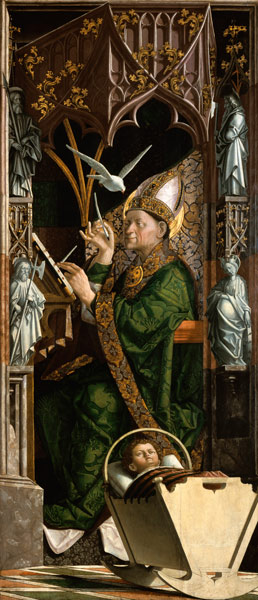 10
Michael Pacher was a painter and sculptor from Tyrol active during the second half of the fifteenth century. He was one of the earliest artists to introduce the principles of Renaissance painting...
10
Michael Pacher was a painter and sculptor from Tyrol active during the second half of the fifteenth century. He was one of the earliest artists to introduce the principles of Renaissance painting...
Wilhelm Busch
 10
Heinrich Christian Wilhelm Busch was a German humorist, poet, illustrator, and painter. He published wildly innovative illustrated tales that remain influential to this day.
10
Heinrich Christian Wilhelm Busch was a German humorist, poet, illustrator, and painter. He published wildly innovative illustrated tales that remain influential to this day.
Johann Steinböck
 9
Johann Steinböck war Landwirt und Politiker (ÖVP) und Landeshauptmann von Niederösterreich.
9
Johann Steinböck war Landwirt und Politiker (ÖVP) und Landeshauptmann von Niederösterreich.
Wolfgang Pauli
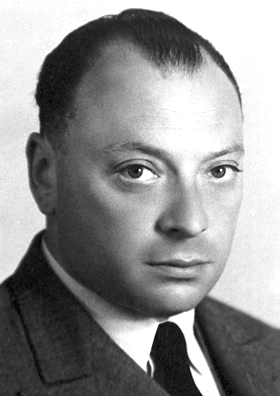 9
Wolfgang Ernst Pauli was an Austrian theoretical physicist and one of the pioneers of quantum physics. In 1945, after having been nominated by Albert Einstein, Pauli received the Nobel Prize in...
9
Wolfgang Ernst Pauli was an Austrian theoretical physicist and one of the pioneers of quantum physics. In 1945, after having been nominated by Albert Einstein, Pauli received the Nobel Prize in...
Robert Bosch
 9
Robert Bosch was a German industrialist, engineer and inventor, founder of Robert Bosch GmbH.
9
Robert Bosch was a German industrialist, engineer and inventor, founder of Robert Bosch GmbH.
Franz Senn
 9
Franz Xaverius Senn was an Austrian priest and mountaineer who was among the first to promote alpinism and foster the early development of mountaineering in Tyrol. His concern for the poverty of his...
9
Franz Xaverius Senn was an Austrian priest and mountaineer who was among the first to promote alpinism and foster the early development of mountaineering in Tyrol. His concern for the poverty of his...
Marcus Aurelius
 9
Marcus Aurelius Antoninus was Roman emperor from 161 to 180 and a Stoic philosopher. He was a member of the Nerva–Antonine dynasty, the last of the rulers later known as the Five Good Emperors and...
9
Marcus Aurelius Antoninus was Roman emperor from 161 to 180 and a Stoic philosopher. He was a member of the Nerva–Antonine dynasty, the last of the rulers later known as the Five Good Emperors and...
Hermann Löns
 9
Hermann Löns was a German journalist and writer. He is most famous as "The Poet of the Heath" for his novels and poems celebrating the people and landscape of the North German moors, particularly the...
9
Hermann Löns was a German journalist and writer. He is most famous as "The Poet of the Heath" for his novels and poems celebrating the people and landscape of the North German moors, particularly the...
Georg Trakl
 9
Georg Trakl was an Austrian poet and the brother of the pianist Grete Trakl. He is considered one of the most important Austrian Expressionists. He is perhaps best known for his poem "Grodek", which...
9
Georg Trakl was an Austrian poet and the brother of the pianist Grete Trakl. He is considered one of the most important Austrian Expressionists. He is perhaps best known for his poem "Grodek", which...
Josef Krainer Jr.
 9
Josef Krainer junior was an Austrian politician and Governor of Styria from 1981 to 1996. He was the son of Governor Josef Krainer senior and a member of the Austrian People's Party.
9
Josef Krainer junior was an Austrian politician and Governor of Styria from 1981 to 1996. He was the son of Governor Josef Krainer senior and a member of the Austrian People's Party.
Franz Karl Ginzkey
 8
Franz Karl Ginzkey was an Austro-Hungarian officer, poet and writer. His arguably most famous book Hatschi Bratschis Luftballon captivated generations of children.
8
Franz Karl Ginzkey was an Austro-Hungarian officer, poet and writer. His arguably most famous book Hatschi Bratschis Luftballon captivated generations of children.
Richard Mayr
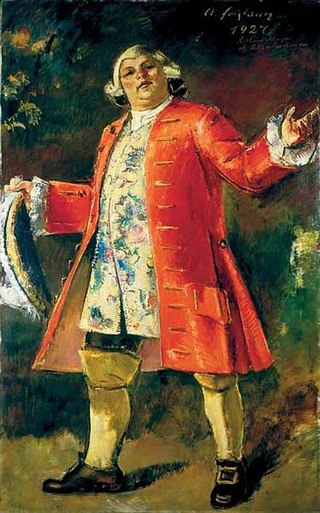 8
Richard Mayr was an Austrian operatic bass-baritone who was particularly admired for his performances in works by Wolfgang Amadeus Mozart, Richard Wagner and Richard Strauss. He notably created the...
8
Richard Mayr was an Austrian operatic bass-baritone who was particularly admired for his performances in works by Wolfgang Amadeus Mozart, Richard Wagner and Richard Strauss. He notably created the...
Blasius Hueber
 8
Blasius Hueber war Bauer und Landvermesser, weshalb er wie Peter Anich (1723–1766) und sein Neffe Anton Kirchebner zu den sogenannten Bauernkartografen gezählt wird.
8
Blasius Hueber war Bauer und Landvermesser, weshalb er wie Peter Anich (1723–1766) und sein Neffe Anton Kirchebner zu den sogenannten Bauernkartografen gezählt wird.
Alfred Kubin
 8
Alfred Leopold Isidor Kubin was an Austrian printmaker, illustrator, and occasional writer. Kubin is considered an important representative of Symbolism and Expressionism.
8
Alfred Leopold Isidor Kubin was an Austrian printmaker, illustrator, and occasional writer. Kubin is considered an important representative of Symbolism and Expressionism.
Gregor Mendel
 8
Gregor Johann Mendel OSA was an Austrian-Czech biologist, meteorologist, mathematician, Augustinian friar and abbot of St. Thomas' Abbey in Brno (Brünn), Margraviate of Moravia. Mendel was born in a...
8
Gregor Johann Mendel OSA was an Austrian-Czech biologist, meteorologist, mathematician, Augustinian friar and abbot of St. Thomas' Abbey in Brno (Brünn), Margraviate of Moravia. Mendel was born in a...
Georg Sigl
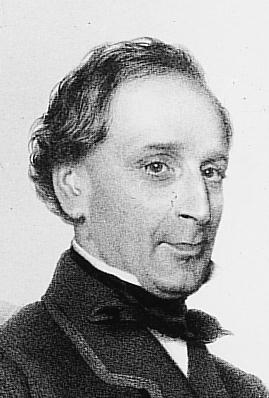 8
Georg Sigl was an Austrian mechanical engineer and entrepreneur.
8
Georg Sigl was an Austrian mechanical engineer and entrepreneur.
Thomas Koschat
 8
Thomas Koschat was a composer and bass singer from Austria-Hungary. He popularized Carinthian folk music across Europe and the Americas.
8
Thomas Koschat was a composer and bass singer from Austria-Hungary. He popularized Carinthian folk music across Europe and the Americas.
Liese Prokop
 8
Liesel "Liese" Prokop-Sykora was an Austrian athlete who competed mainly in the pentathlon and, later in her life, a politician.
8
Liesel "Liese" Prokop-Sykora was an Austrian athlete who competed mainly in the pentathlon and, later in her life, a politician.
James Watt
 7
James Watt was a Scottish inventor, mechanical engineer, and chemist who improved on Thomas Newcomen's 1712 Newcomen steam engine with his Watt steam engine in 1776, which was fundamental to the...
7
James Watt was a Scottish inventor, mechanical engineer, and chemist who improved on Thomas Newcomen's 1712 Newcomen steam engine with his Watt steam engine in 1776, which was fundamental to the...
Peter Tunner
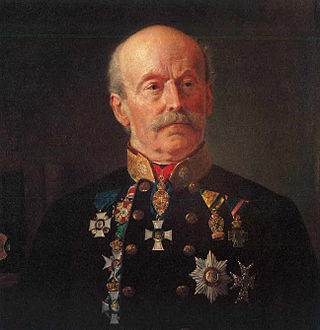 7
Peter Tunner, ab 1864 Peter Ritter von Tunner zu Turrach, war ein steirischer Bergbaupionier, der sich vor allem um das Eisenhüttenwesen verdient gemacht hat.
7
Peter Tunner, ab 1864 Peter Ritter von Tunner zu Turrach, war ein steirischer Bergbaupionier, der sich vor allem um das Eisenhüttenwesen verdient gemacht hat.
Oswald of Northumbria
 7
Oswald was King of Northumbria from 634 until his death, and is venerated as a saint, of whom there was a particular cult in the Middle Ages.
7
Oswald was King of Northumbria from 634 until his death, and is venerated as a saint, of whom there was a particular cult in the Middle Ages.
Rembrandt
 7
Rembrandt Harmenszoon van Rijn, usually simply known as Rembrandt, was a Dutch Golden Age painter, printmaker, and draughtsman. He is generally considered one of the greatest visual artists in the...
7
Rembrandt Harmenszoon van Rijn, usually simply known as Rembrandt, was a Dutch Golden Age painter, printmaker, and draughtsman. He is generally considered one of the greatest visual artists in the...
Karl Wurmb
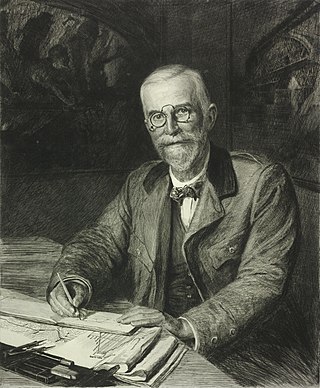 7
Karl Wurmb war ein österreichischer Ingenieur, der maßgeblich für die Planung und Realisierung mehrerer wichtiger Eisenbahnstrecken verantwortlich war.
7
Karl Wurmb war ein österreichischer Ingenieur, der maßgeblich für die Planung und Realisierung mehrerer wichtiger Eisenbahnstrecken verantwortlich war.
Koloman Wallisch
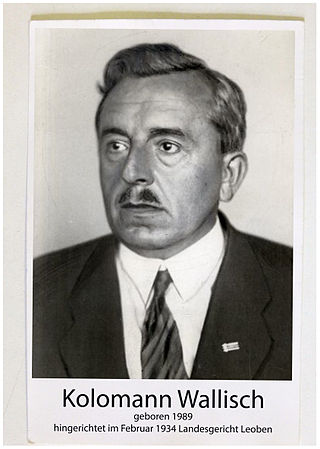 7
Koloman Wallisch was a socialist labor leader and revolutionary in Austria.
7
Koloman Wallisch was a socialist labor leader and revolutionary in Austria.
Alexander von Humboldt
 7
Friedrich Wilhelm Heinrich Alexander von Humboldt was a German polymath, geographer, naturalist, explorer, and proponent of Romantic philosophy and science. He was the younger brother of the Prussian...
7
Friedrich Wilhelm Heinrich Alexander von Humboldt was a German polymath, geographer, naturalist, explorer, and proponent of Romantic philosophy and science. He was the younger brother of the Prussian...
Francis of Assisi
 7
Giovanni di Pietro di Bernardone, known as Francis of Assisi, was an Italian mystic, poet and Catholic friar who founded the religious order of the Franciscans. He was inspired to lead a Christian...
7
Giovanni di Pietro di Bernardone, known as Francis of Assisi, was an Italian mystic, poet and Catholic friar who founded the religious order of the Franciscans. He was inspired to lead a Christian...
Eduard von Hartmann
 7
Karl Robert Eduard von Hartmann was a German philosopher, independent scholar and author of Philosophy of the Unconscious (1869). His notable ideas include the theory of the Unconscious and a...
7
Karl Robert Eduard von Hartmann was a German philosopher, independent scholar and author of Philosophy of the Unconscious (1869). His notable ideas include the theory of the Unconscious and a...
Johann Sebastian Bach
 7
Johann Sebastian Bach was a German composer and musician of the late Baroque period. He is known for his prolific authorship of music across a variety of instruments and forms, including; orchestral...
7
Johann Sebastian Bach was a German composer and musician of the late Baroque period. He is known for his prolific authorship of music across a variety of instruments and forms, including; orchestral...
Jochen Rindt
 7
Karl Jochen Rindt was a German-born racing driver who competed with an Austrian licence during his career, despite having German and not Austrian citizenship. In 1970, he was killed during practice...
7
Karl Jochen Rindt was a German-born racing driver who competed with an Austrian licence during his career, despite having German and not Austrian citizenship. In 1970, he was killed during practice...
Franz Schmidt (composer)
 7
Franz Schmidt, also Ferenc Schmidt was an Austro-Hungarian composer, cellist and pianist.
7
Franz Schmidt, also Ferenc Schmidt was an Austro-Hungarian composer, cellist and pianist.
Anton Afritsch
 7
Anton Afritsch was an Austrian journalist and politician. He is best remembered as the initiator of the Kinderfreunde movement.
7
Anton Afritsch was an Austrian journalist and politician. He is best remembered as the initiator of the Kinderfreunde movement.
Adam Müller-Guttenbrunn
 7
Adam Müller-Guttenbrunn was an Austrian author.
7
Adam Müller-Guttenbrunn was an Austrian author.
Edmund Eysler
 7
Edmund Samuel Eysler, was an Austrian composer.
7
Edmund Samuel Eysler, was an Austrian composer.
Michael (archangel)
 7
Michael, also called Saint Michael the Archangel, Archangel Michael and Saint Michael the Taxiarch is an archangel in Judaism, Christianity, Islam, and the Baha'i faith. The earliest surviving...
7
Michael, also called Saint Michael the Archangel, Archangel Michael and Saint Michael the Taxiarch is an archangel in Judaism, Christianity, Islam, and the Baha'i faith. The earliest surviving...
Josef Gangl
 7
Josef "Sepp" Gangl was a German Major of the Wehrmacht who became a member of the Austrian Resistance very late in the Second World War. He was killed in action on May 5, 1945, at Itter Castle,...
7
Josef "Sepp" Gangl was a German Major of the Wehrmacht who became a member of the Austrian Resistance very late in the Second World War. He was killed in action on May 5, 1945, at Itter Castle,...
Carl Benz
 7
Carl Friedrich Benz was a German engine designer and automotive engineer. His Benz Patent Motorcar from 1885 is considered the first practical modern automobile and first car put into series...
7
Carl Friedrich Benz was a German engine designer and automotive engineer. His Benz Patent Motorcar from 1885 is considered the first practical modern automobile and first car put into series...
Giuseppe Verdi
 7
Giuseppe Fortunino Francesco Verdi was an Italian composer best known for his operas. He was born near Busseto to a provincial family of moderate means, receiving a musical education with the help of...
7
Giuseppe Fortunino Francesco Verdi was an Italian composer best known for his operas. He was born near Busseto to a provincial family of moderate means, receiving a musical education with the help of...
Albert Einstein
 7
Albert Einstein was a German-born theoretical physicist who is widely held to be one of the greatest and most influential scientists of all time. Best known for developing the theory of relativity,...
7
Albert Einstein was a German-born theoretical physicist who is widely held to be one of the greatest and most influential scientists of all time. Best known for developing the theory of relativity,...
Batthyány
 7
The House of Batthyány is the name of an ancient and distinguished Hungarian Magnate family. Members of this family bear the title Count/Countess (Graf/Gräfin) Batthyány von Német-Ujvar respectively,...
7
The House of Batthyány is the name of an ancient and distinguished Hungarian Magnate family. Members of this family bear the title Count/Countess (Graf/Gräfin) Batthyány von Német-Ujvar respectively,...
Roald Amundsen
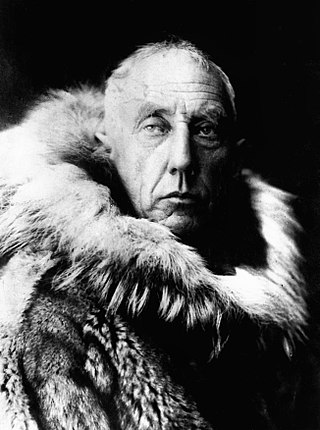 6
Roald Engelbregt Gravning Amundsen was a Norwegian explorer of polar regions. He was a key figure of the period known as the Heroic Age of Antarctic Exploration.
6
Roald Engelbregt Gravning Amundsen was a Norwegian explorer of polar regions. He was a key figure of the period known as the Heroic Age of Antarctic Exploration.
Saint George
 6
Saint George, also George of Lydda, was an early Christian martyr who is venerated as a saint in Christianity. According to tradition, he was a soldier in the Roman army. Of Cappadocian Greek origin,...
6
Saint George, also George of Lydda, was an early Christian martyr who is venerated as a saint in Christianity. According to tradition, he was a soldier in the Roman army. Of Cappadocian Greek origin,...
William H. Rupertus
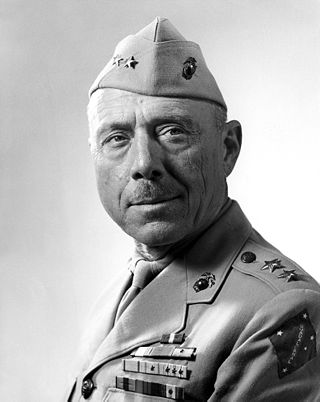 6
William Henry Rupertus was a major general in the United States Marine Corps, who commanded the famed 1st Marine Division in the Pacific in World War II and also authored the USMC Rifleman's Creed.
6
William Henry Rupertus was a major general in the United States Marine Corps, who commanded the famed 1st Marine Division in the Pacific in World War II and also authored the USMC Rifleman's Creed.
Otto von Bismarck
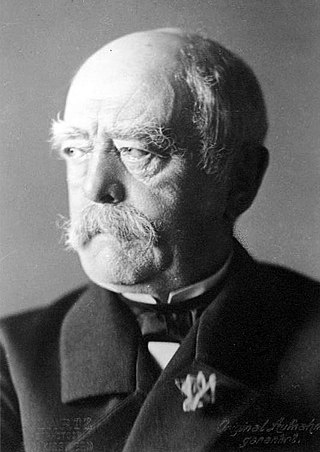 6
Otto, Prince of Bismarck, Count of Bismarck-Schönhausen, Duke of Lauenburg was a Prussian and later German statesman and diplomat. Bismarck's Realpolitik and powerful rule led to him being called the...
6
Otto, Prince of Bismarck, Count of Bismarck-Schönhausen, Duke of Lauenburg was a Prussian and later German statesman and diplomat. Bismarck's Realpolitik and powerful rule led to him being called the...
George Frideric Handel
 6
George Frideric Handel was a German-British Baroque composer well known for his operas, oratorios, anthems, concerti grossi, and organ concertos. Handel received his training in Halle and worked as a...
6
George Frideric Handel was a German-British Baroque composer well known for his operas, oratorios, anthems, concerti grossi, and organ concertos. Handel received his training in Halle and worked as a...
Rudolf von Alt
 6
Rudolf Ritter von Alt was an Austrian landscape and architectural painter. Born as Rudolf Alt, he could call himself von Alt and bear the title of a Ritter (knight) after he gained nobility in 1889.
6
Rudolf Ritter von Alt was an Austrian landscape and architectural painter. Born as Rudolf Alt, he could call himself von Alt and bear the title of a Ritter (knight) after he gained nobility in 1889.
Richard Strauss
 6
Richard Georg Strauss was a German composer and conductor best known for his tone poems and operas. Considered a leading composer of the late Romantic and early modern eras, he has been described as...
6
Richard Georg Strauss was a German composer and conductor best known for his tone poems and operas. Considered a leading composer of the late Romantic and early modern eras, he has been described as...
Gerhart Hauptmann
 6
Gerhart Johann Robert Hauptmann was a German dramatist and novelist. He is counted among the most important promoters of literary naturalism, though he integrated other styles into his work as well....
6
Gerhart Johann Robert Hauptmann was a German dramatist and novelist. He is counted among the most important promoters of literary naturalism, though he integrated other styles into his work as well....
Franz Nabl
 6
Franz Nabl war ein österreichischer Schriftsteller, der trotz ursprünglich völkisch-nationaler Gesinnung zu einem Wegbereiter der jungen österreichischen Nachkriegsavantgarde wurde.
6
Franz Nabl war ein österreichischer Schriftsteller, der trotz ursprünglich völkisch-nationaler Gesinnung zu einem Wegbereiter der jungen österreichischen Nachkriegsavantgarde wurde.
Erich Fried
 6
Erich Fried was an Austrian-born poet, writer, and translator. He initially became known to a broader public in both Germany and Austria for his political poetry, and later for his love poems. As a...
6
Erich Fried was an Austrian-born poet, writer, and translator. He initially became known to a broader public in both Germany and Austria for his political poetry, and later for his love poems. As a...
Ferdinand von Zeppelin
 6
Count Ferdinand von Zeppelin was a German general and later inventor of the Zeppelin rigid airships. His name became synonymous with airships and dominated long-distance flight until the 1930s. He...
6
Count Ferdinand von Zeppelin was a German general and later inventor of the Zeppelin rigid airships. His name became synonymous with airships and dominated long-distance flight until the 1930s. He...
Fridtjof Nansen
 6
Fridtjof Wedel-Jarlsberg Nansen was a Norwegian polymath and Nobel Peace Prize laureate. He gained prominence at various points in his life as an explorer, scientist, diplomat, humanitarian and...
6
Fridtjof Wedel-Jarlsberg Nansen was a Norwegian polymath and Nobel Peace Prize laureate. He gained prominence at various points in his life as an explorer, scientist, diplomat, humanitarian and...
Friedrich Hölderlin
 6
Johann Christian Friedrich Hölderlin was a German poet and philosopher. Described by Norbert von Hellingrath as "the most German of Germans", Hölderlin was a key figure of German Romanticism....
6
Johann Christian Friedrich Hölderlin was a German poet and philosopher. Described by Norbert von Hellingrath as "the most German of Germans", Hölderlin was a key figure of German Romanticism....
Friedrich Gulda
 6
Friedrich Gulda was an Austrian pianist and composer who worked in both the classical and jazz fields.
6
Friedrich Gulda was an Austrian pianist and composer who worked in both the classical and jazz fields.
Arthur Schopenhauer
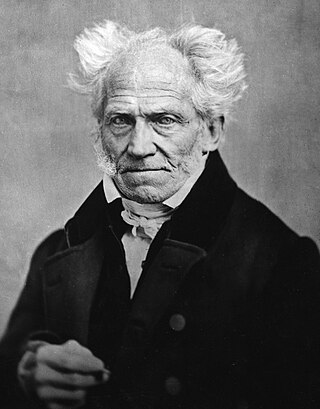 5
Arthur Schopenhauer was a German philosopher. He is known for his 1818 work The World as Will and Representation, which characterizes the phenomenal world as the manifestation of a blind and...
5
Arthur Schopenhauer was a German philosopher. He is known for his 1818 work The World as Will and Representation, which characterizes the phenomenal world as the manifestation of a blind and...
Ludwig Wittgenstein
 5
Ludwig Josef Johann Wittgenstein was an Austrian philosopher who worked primarily in logic, the philosophy of mathematics, the philosophy of mind, and the philosophy of language.
5
Ludwig Josef Johann Wittgenstein was an Austrian philosopher who worked primarily in logic, the philosophy of mathematics, the philosophy of mind, and the philosophy of language.
Johann Gottlieb Fichte
 5
Johann Gottlieb Fichte was a German philosopher who became a founding figure of the philosophical movement known as German idealism, which developed from the theoretical and ethical writings of...
5
Johann Gottlieb Fichte was a German philosopher who became a founding figure of the philosophical movement known as German idealism, which developed from the theoretical and ethical writings of...
Nico Dostal
 5
Nico Dostal was an Austrian composer who later specialised in operetta and film music.
5
Nico Dostal was an Austrian composer who later specialised in operetta and film music.
Julius Wagner-Jauregg
 5
Julius Wagner-Jauregg was an Austrian physician, who won the Nobel Prize in Physiology or Medicine in 1927, and is the first psychiatrist to have done so. His Nobel award was "for his discovery of...
5
Julius Wagner-Jauregg was an Austrian physician, who won the Nobel Prize in Physiology or Medicine in 1927, and is the first psychiatrist to have done so. His Nobel award was "for his discovery of...
Christian Friedrich Hebbel
 5
Christian Friedrich Hebbel was a German poet and dramatist.
5
Christian Friedrich Hebbel was a German poet and dramatist.
Eduard Wallnöfer
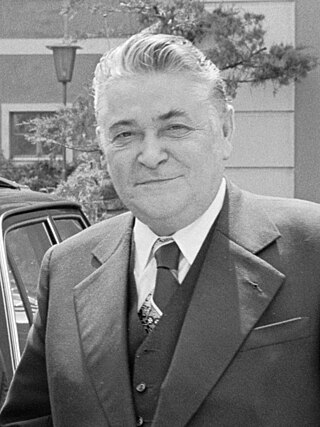 5
Eduard Wallnöfer was an Austrian politician from Schluderns.
5
Eduard Wallnöfer was an Austrian politician from Schluderns.
Galileo Galilei
 5
Galileo di Vincenzo Bonaiuti de' Galilei, commonly referred to as Galileo Galilei or simply Galileo, was an Italian astronomer, physicist and engineer, sometimes described as a polymath. He was born...
5
Galileo di Vincenzo Bonaiuti de' Galilei, commonly referred to as Galileo Galilei or simply Galileo, was an Italian astronomer, physicist and engineer, sometimes described as a polymath. He was born...
Maria Montessori
 5
Maria Tecla Artemisia Montessori was an Italian physician and educator best known for her philosophy of education and her writing on scientific pedagogy. At an early age, Montessori enrolled in...
5
Maria Tecla Artemisia Montessori was an Italian physician and educator best known for her philosophy of education and her writing on scientific pedagogy. At an early age, Montessori enrolled in...
Heinrich Hertz
 5
Heinrich Rudolf Hertz was a German physicist who first conclusively proved the existence of the electromagnetic waves predicted by James Clerk Maxwell's equations of electromagnetism. The unit of...
5
Heinrich Rudolf Hertz was a German physicist who first conclusively proved the existence of the electromagnetic waves predicted by James Clerk Maxwell's equations of electromagnetism. The unit of...
Anton Kolig
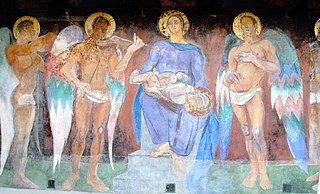 5
Anton Kolig was an Austrian expressionist painter.
5
Anton Kolig was an Austrian expressionist painter.
Erich Landgrebe
 5
Erich Landgrebe war ein österreichischer Schriftsteller und Maler.
5
Erich Landgrebe war ein österreichischer Schriftsteller und Maler.
Saint Stephen
 5
Stephen is traditionally venerated as the protomartyr or first martyr of Christianity. According to the Acts of the Apostles, he was a deacon in the early church at Jerusalem who angered members of...
5
Stephen is traditionally venerated as the protomartyr or first martyr of Christianity. According to the Acts of the Apostles, he was a deacon in the early church at Jerusalem who angered members of...
Alfred Nobel
 5
Alfred Bernhard Nobel was a Swedish chemist, inventor, engineer and businessman. He is known for inventing dynamite as well as having bequeathed his fortune to establish the Nobel Prize. He also made...
5
Alfred Bernhard Nobel was a Swedish chemist, inventor, engineer and businessman. He is known for inventing dynamite as well as having bequeathed his fortune to establish the Nobel Prize. He also made...
Wolfdietrich
 4
Wolfdietrich is the eponymous protagonist of the Middle High German heroic epic Wolfdietrich. First written down in strophic form in around 1230 by an anonymous author, it survives in four main...
4
Wolfdietrich is the eponymous protagonist of the Middle High German heroic epic Wolfdietrich. First written down in strophic form in around 1230 by an anonymous author, it survives in four main...
Ferdinand Wedenig
 4
Ferdinand Wedenig war ein österreichischer Politiker der SPÖ. Von 1947 bis 1965 war er Landeshauptmann von Kärnten.
4
Ferdinand Wedenig war ein österreichischer Politiker der SPÖ. Von 1947 bis 1965 war er Landeshauptmann von Kärnten.
Hans Resel
 4
Hans Resel war ein österreichischer Journalist und Politiker (SDAP).
4
Hans Resel war ein österreichischer Journalist und Politiker (SDAP).
Christopher Columbus
 4
Christopher Columbus was an Italian explorer and navigator from the Republic of Genoa who completed four Spanish-based voyages across the Atlantic Ocean sponsored by the Catholic Monarchs, opening...
4
Christopher Columbus was an Italian explorer and navigator from the Republic of Genoa who completed four Spanish-based voyages across the Atlantic Ocean sponsored by the Catholic Monarchs, opening...
Bruno Kreisky
 4
Bruno Kreisky was an Austrian social democratic politician who served as Foreign Minister from 1959 to 1966 and as Chancellor from 1970 to 1983. Aged 72 at the end of his chancellorship, he was the...
4
Bruno Kreisky was an Austrian social democratic politician who served as Foreign Minister from 1959 to 1966 and as Chancellor from 1970 to 1983. Aged 72 at the end of his chancellorship, he was the...
Nikola Tesla
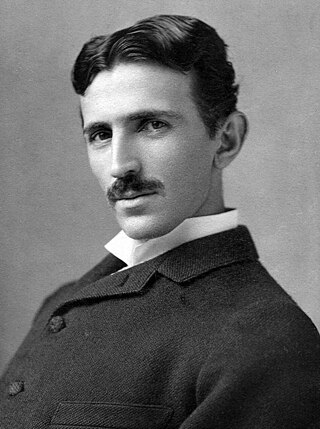 4
Nikola Tesla was a Serbian-American inventor, electrical engineer, mechanical engineer, and futurist. He is known for his contributions to the design of the modern alternating current (AC)...
4
Nikola Tesla was a Serbian-American inventor, electrical engineer, mechanical engineer, and futurist. He is known for his contributions to the design of the modern alternating current (AC)...
Felix Dahn
 4
Felix Ludwig Julius Dahn was a German law professor and nationalist author, poet and historian.
4
Felix Ludwig Julius Dahn was a German law professor and nationalist author, poet and historian.
John Bosco
 4
John Melchior Bosco, SDB, popularly known as Don Bosco, was an Italian Catholic priest, educator and writer of the 19th century. While working in Turin, where the population suffered many of the ill...
4
John Melchior Bosco, SDB, popularly known as Don Bosco, was an Italian Catholic priest, educator and writer of the 19th century. While working in Turin, where the population suffered many of the ill...
Joseph von Hammer-Purgstall
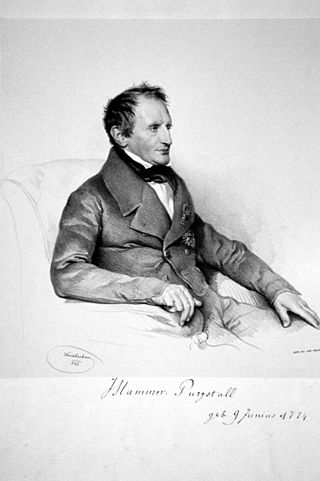 4
Joseph Freiherr von Hammer-Purgstall was an Austrian orientalist, historian and diplomat. He is considered one of the most accomplished orientalists of his time.
4
Joseph Freiherr von Hammer-Purgstall was an Austrian orientalist, historian and diplomat. He is considered one of the most accomplished orientalists of his time.
John of Nepomuk
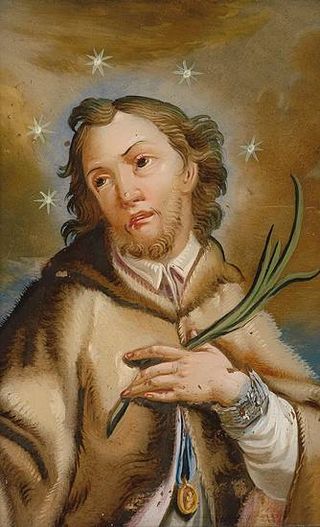 4
John of Nepomuk
was a saint of Bohemia who was drowned in the Vltava river at the behest of King Wenceslaus IV of Bohemia. Later accounts state that he was the confessor of the queen of Bohemia and...
4
John of Nepomuk
was a saint of Bohemia who was drowned in the Vltava river at the behest of King Wenceslaus IV of Bohemia. Later accounts state that he was the confessor of the queen of Bohemia and...
Charles Darwin
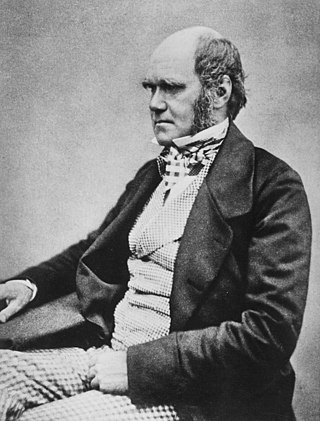 4
Charles Robert Darwin was an English naturalist, geologist and biologist, widely known for his contributions to evolutionary biology. His proposition that all species of life have descended from a...
4
Charles Robert Darwin was an English naturalist, geologist and biologist, widely known for his contributions to evolutionary biology. His proposition that all species of life have descended from a...
Michael Schumacher
 4
Michael Schumacher is a German former racing driver who competed in Formula One for Jordan, Benetton, Ferrari, and Mercedes. Schumacher has a joint-record seven World Drivers' Championship titles ;...
4
Michael Schumacher is a German former racing driver who competed in Formula One for Jordan, Benetton, Ferrari, and Mercedes. Schumacher has a joint-record seven World Drivers' Championship titles ;...
Max Reger
 4
Johann Baptist Joseph Maximilian Reger was a German composer, pianist, organist, conductor, and academic teacher. He worked as a concert pianist, a musical director at the Leipzig University Church,...
4
Johann Baptist Joseph Maximilian Reger was a German composer, pianist, organist, conductor, and academic teacher. He worked as a concert pianist, a musical director at the Leipzig University Church,...
Jodok Fink
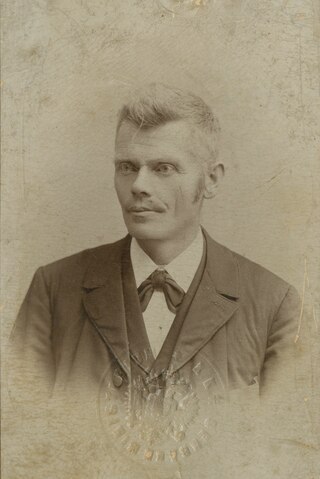 4
Jodok Fink was an Austrian farmer and politician who served as the first Vice-Chancellor of Austria from 15 March 1919 to 24 June 1920.
4
Jodok Fink was an Austrian farmer and politician who served as the first Vice-Chancellor of Austria from 15 March 1919 to 24 June 1920.
Marie Curie
 4
Maria Salomea Skłodowska-Curie, known simply as Marie Curie, was a Polish and naturalised-French physicist and chemist who conducted pioneering research on radioactivity. She was the first woman to...
4
Maria Salomea Skłodowska-Curie, known simply as Marie Curie, was a Polish and naturalised-French physicist and chemist who conducted pioneering research on radioactivity. She was the first woman to...
Ludwig Leser
 4
Ludwig Leser war ein österreichischer Politiker (SPÖ) und Landeshauptmann des Burgenlands.
4
Ludwig Leser war ein österreichischer Politiker (SPÖ) und Landeshauptmann des Burgenlands.
Grete Rehor
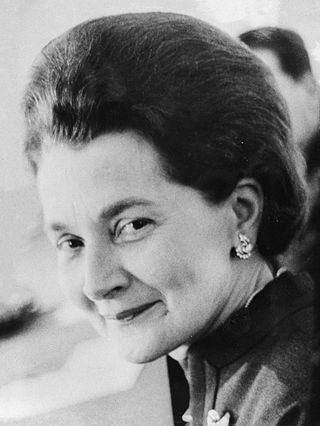 4
Grete Rehor, was an Austrian politician belonging to the Austrian People's Party. She was Minister of Social Affairs from 1966 to 1970, and was the first female government minister in Austria.
4
Grete Rehor, was an Austrian politician belonging to the Austrian People's Party. She was Minister of Social Affairs from 1966 to 1970, and was the first female government minister in Austria.
Tiberius
 4
Tiberius Julius Caesar Augustus was Roman emperor from AD 14 until 37. He succeeded his stepfather Augustus, the first Roman emperor. Tiberius was born in Rome in 42 BC to Roman politician Tiberius...
4
Tiberius Julius Caesar Augustus was Roman emperor from AD 14 until 37. He succeeded his stepfather Augustus, the first Roman emperor. Tiberius was born in Rome in 42 BC to Roman politician Tiberius...
Margret Bilger
 4
Margret Bilger war eine österreichische Künstlerin.
4
Margret Bilger war eine österreichische Künstlerin.
Napoleon
 4
Napoleon Bonaparte, later known by his regnal name Napoleon I, was a French emperor and military commander who rose to prominence during the French Revolution and led successful campaigns during the...
4
Napoleon Bonaparte, later known by his regnal name Napoleon I, was a French emperor and military commander who rose to prominence during the French Revolution and led successful campaigns during the...
Fritz Matzner
 3
Fritz Matzner war ein österreichischer Politiker der Sozialdemokratischen Partei Österreichs (SPÖ), der unter anderem zwischen 1945 und 1960 Landesrat sowie von 1960 bis 1963...
3
Fritz Matzner war ein österreichischer Politiker der Sozialdemokratischen Partei Österreichs (SPÖ), der unter anderem zwischen 1945 und 1960 Landesrat sowie von 1960 bis 1963...
Count Anton Alexander von Auersperg
 3
Count Anton Alexander von Auersperg, also known under the name Anastasius Grün, was an Austrian poet and liberal politician from Carniola, a former Habsburg crown land in today's Slovenia.
3
Count Anton Alexander von Auersperg, also known under the name Anastasius Grün, was an Austrian poet and liberal politician from Carniola, a former Habsburg crown land in today's Slovenia.
Herbert von Karajan
 3
Herbert von Karajan was an Austrian conductor. He was principal conductor of the Berlin Philharmonic for 34 years. During the Nazi era, he debuted at the Salzburg Festival, with the Vienna...
3
Herbert von Karajan was an Austrian conductor. He was principal conductor of the Berlin Philharmonic for 34 years. During the Nazi era, he debuted at the Salzburg Festival, with the Vienna...
Ludo Moritz Hartmann
 3
Ludo (Ludwig) Moritz Hartmann was an Austrian historian, diplomat and Social Democratic politician. He advocated an anti-metaphysical and materialist approach to history.
3
Ludo (Ludwig) Moritz Hartmann was an Austrian historian, diplomat and Social Democratic politician. He advocated an anti-metaphysical and materialist approach to history.
Georg Wilhelm Friedrich Hegel
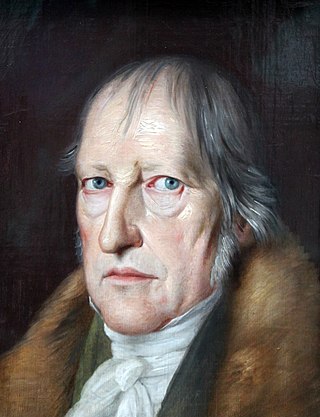 3
Georg Wilhelm Friedrich Hegel was a German philosopher and one of the most influential figures of German idealism and 19th-century philosophy. His influence extends across the entire range of...
3
Georg Wilhelm Friedrich Hegel was a German philosopher and one of the most influential figures of German idealism and 19th-century philosophy. His influence extends across the entire range of...
Arthur Lemisch
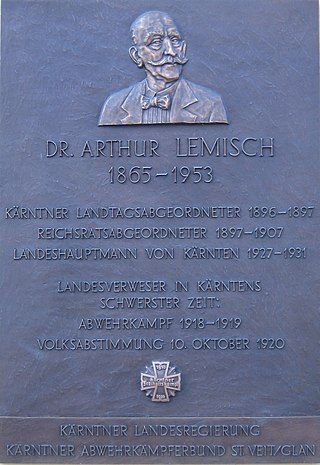 3
Arthur Lemisch war ein österreichischer Politiker. Als „Landesverweser“ stand er von 1918 bis 1921 der provisorischen Landesversammlung von Kärnten vor, von 1927 bis 1931 war er Landeshauptmann des...
3
Arthur Lemisch war ein österreichischer Politiker. Als „Landesverweser“ stand er von 1918 bis 1921 der provisorischen Landesversammlung von Kärnten vor, von 1927 bis 1931 war er Landeshauptmann des...
Franz Joseph Emil Fischer
 3
Franz Joseph Emil Fischer was a German chemist. He was the founder and first director of the Kaiser Wilhelm Institute for Coal Research. He is known for the discovery of the Fischer–Tropsch process.
3
Franz Joseph Emil Fischer was a German chemist. He was the founder and first director of the Kaiser Wilhelm Institute for Coal Research. He is known for the discovery of the Fischer–Tropsch process.
Henry Dunant
 3
Henry Dunant, also known as Henri Dunant, was a Swiss humanitarian, businessman, social activist, and co-founder of the Red Cross. His humanitarian efforts won him the first Nobel Peace Prize in 1901.
3
Henry Dunant, also known as Henri Dunant, was a Swiss humanitarian, businessman, social activist, and co-founder of the Red Cross. His humanitarian efforts won him the first Nobel Peace Prize in 1901.
Virgil
 3
Publius Vergilius Maro, usually called Virgil or Vergil in English, was an ancient Roman poet of the Augustan period. He composed three of the most famous poems in Latin literature: the Eclogues, the...
3
Publius Vergilius Maro, usually called Virgil or Vergil in English, was an ancient Roman poet of the Augustan period. He composed three of the most famous poems in Latin literature: the Eclogues, the...
Thomas Bernhard
 3
Nicolaas Thomas Bernhard was an Austrian novelist, playwright, poet and polemicist who is considered one of the most important German-language authors of the postwar era. He explored themes of death,...
3
Nicolaas Thomas Bernhard was an Austrian novelist, playwright, poet and polemicist who is considered one of the most important German-language authors of the postwar era. He explored themes of death,...
Emil Ertl
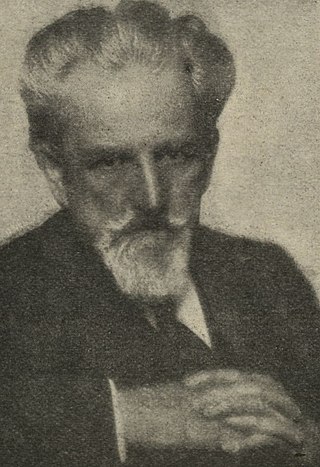 3
Emil Adolf Victor Ertl war ein österreichischer Dichter und Schriftsteller.
3
Emil Adolf Victor Ertl war ein österreichischer Dichter und Schriftsteller.
Angelica Kauffman
 3
Maria Anna Angelika Kauffmann, usually known in English as Angelica Kauffman, was a Swiss Neoclassical painter who had a successful career in London and Rome. Remembered primarily as a history...
3
Maria Anna Angelika Kauffmann, usually known in English as Angelica Kauffman, was a Swiss Neoclassical painter who had a successful career in London and Rome. Remembered primarily as a history...
Robert Bellarmine
 3
Robert Bellarmine, SJ was an Italian Jesuit and a cardinal of the Catholic Church. He was canonized a saint in 1930 and named Doctor of the Church, one of only 37. He was one of the most important...
3
Robert Bellarmine, SJ was an Italian Jesuit and a cardinal of the Catholic Church. He was canonized a saint in 1930 and named Doctor of the Church, one of only 37. He was one of the most important...
Vilma Eckl
 3
Vilma Eckl war eine österreichische Malerin und Grafikerin.
3
Vilma Eckl war eine österreichische Malerin und Grafikerin.
Theodor Storm
 3
Hans Theodor Woldsen Storm, commonly known as Theodor Storm, was a German-Frisian writer and poet. He is considered to be one of the most important figures of German realism.
3
Hans Theodor Woldsen Storm, commonly known as Theodor Storm, was a German-Frisian writer and poet. He is considered to be one of the most important figures of German realism.
Franz Rehrl
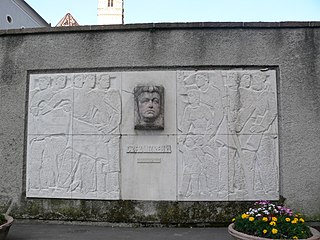 3
Franz Rehrl war Jurist und Politiker der Christlichsozialen Partei Österreichs sowie von 1922 bis 1938 Landeshauptmann von Salzburg.
3
Franz Rehrl war Jurist und Politiker der Christlichsozialen Partei Österreichs sowie von 1922 bis 1938 Landeshauptmann von Salzburg.
Hans Liebherr
 3
Hans Liebherr war ein deutscher Baumeister, Erfinder und Unternehmensgründer des Baumaschinenkonzerns Liebherr. Er war zudem Aufsichtsratsvorsitzender der Liebherr-Holding GmbH in Biberach an der Riß...
3
Hans Liebherr war ein deutscher Baumeister, Erfinder und Unternehmensgründer des Baumaschinenkonzerns Liebherr. Er war zudem Aufsichtsratsvorsitzender der Liebherr-Holding GmbH in Biberach an der Riß...
Leonhard Graf von Blumenthal
 3
Karl Konstantin Albrecht Leonhard Graf von Blumenthal was an officer of the Prussian Army and field marshal of the Imperial German Army, chiefly remembered for his decisive intervention at the Battle...
3
Karl Konstantin Albrecht Leonhard Graf von Blumenthal was an officer of the Prussian Army and field marshal of the Imperial German Army, chiefly remembered for his decisive intervention at the Battle...
Felix Mendelssohn
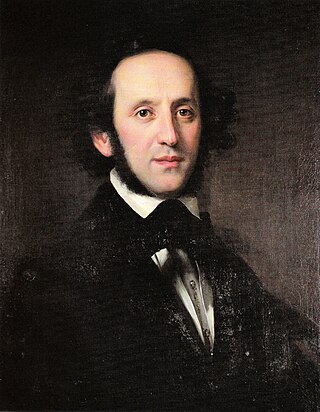 3
Jakob Ludwig Felix Mendelssohn Bartholdy, widely known as Felix Mendelssohn, was a German composer, pianist, organist and conductor of the early Romantic period. Mendelssohn's compositions include...
3
Jakob Ludwig Felix Mendelssohn Bartholdy, widely known as Felix Mendelssohn, was a German composer, pianist, organist and conductor of the early Romantic period. Mendelssohn's compositions include...
Peter Paul Rubens
 3
Sir Peter Paul Rubens was a Flemish artist and diplomat. He is considered the most influential artist of the Flemish Baroque tradition. Rubens's highly charged compositions reference erudite aspects...
3
Sir Peter Paul Rubens was a Flemish artist and diplomat. He is considered the most influential artist of the Flemish Baroque tradition. Rubens's highly charged compositions reference erudite aspects...
Otto Neururer
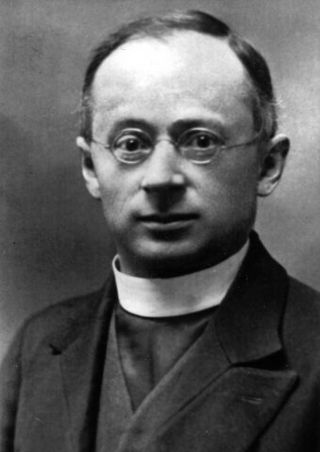 3
Otto Neururer was an Austrian Roman Catholic priest and was the first priest to die in a Nazi concentration camp. Neururer did his studies for the priesthood in Brixen before he served as a teacher...
3
Otto Neururer was an Austrian Roman Catholic priest and was the first priest to die in a Nazi concentration camp. Neururer did his studies for the priesthood in Brixen before he served as a teacher...
Toni Schruf
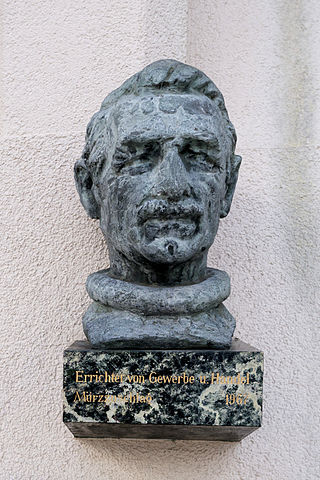 3
Toni Schruf war ein österreichischer Skiläufer, Bergsteiger sowie regionaler Unternehmer und gilt als mitteleuropäischer Skisport-Pionier und steirischer Tourismusmanager. Nach ihm sind Straßen in...
3
Toni Schruf war ein österreichischer Skiläufer, Bergsteiger sowie regionaler Unternehmer und gilt als mitteleuropäischer Skisport-Pionier und steirischer Tourismusmanager. Nach ihm sind Straßen in...
Johann Joseph Fux
 3
Johann Joseph Fux was an Austrian composer, music theorist and pedagogue of the late Baroque era. His most enduring work is not a musical composition but his treatise on counterpoint, Gradus ad...
3
Johann Joseph Fux was an Austrian composer, music theorist and pedagogue of the late Baroque era. His most enduring work is not a musical composition but his treatise on counterpoint, Gradus ad...
Gottfried van Swieten
 3
Gottfried Freiherr van Swieten was a Dutch-born Austrian diplomat, librarian, and government official who served the Holy Roman Empire during the 18th century. He was an enthusiastic amateur musician...
3
Gottfried Freiherr van Swieten was a Dutch-born Austrian diplomat, librarian, and government official who served the Holy Roman Empire during the 18th century. He was an enthusiastic amateur musician...
Ludwig Boltzmann
 3
Ludwig Eduard Boltzmann was an Austrian physicist and philosopher. His greatest achievements were the development of statistical mechanics, and the statistical explanation of the second law of...
3
Ludwig Eduard Boltzmann was an Austrian physicist and philosopher. His greatest achievements were the development of statistical mechanics, and the statistical explanation of the second law of...
Joseph Gruber
 3
Joseph Karl Gruber was an Austrian football player and manager. A midfielder, he played for Austria Wien, French club Le Havre, Maltese side Floriana and in Germany for Alemannia Aachen and Hamburger...
3
Joseph Karl Gruber was an Austrian football player and manager. A midfielder, he played for Austria Wien, French club Le Havre, Maltese side Floriana and in Germany for Alemannia Aachen and Hamburger...
Josef Meinrad
 3
Josef Meinrad was an Austrian actor. From 1959 until his death in 1996, Meinrad held the Republic of Austria's Iffland-Ring, which passes from actor to actor — each bequeathing the ring to the next...
3
Josef Meinrad was an Austrian actor. From 1959 until his death in 1996, Meinrad held the Republic of Austria's Iffland-Ring, which passes from actor to actor — each bequeathing the ring to the next...
Anton Diabelli
 3
Anton Diabelli was an Austrian music publisher, editor and composer. Best known in his time as a publisher, he is most familiar today as the composer of the waltz on which Ludwig van Beethoven wrote...
3
Anton Diabelli was an Austrian music publisher, editor and composer. Best known in his time as a publisher, he is most familiar today as the composer of the waltz on which Ludwig van Beethoven wrote...
Adelheid Popp
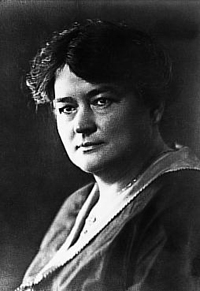 3
Adelheid Popp was an Austrian feminist and socialist who worked as a journalist and politician.
3
Adelheid Popp was an Austrian feminist and socialist who worked as a journalist and politician.
Gottfried Wilhelm Leibniz
 3
Gottfried Wilhelm Leibniz was a German polymath active as a mathematician, philosopher, scientist and diplomat who invented calculus in addition to many other branches of mathematics and statistics....
3
Gottfried Wilhelm Leibniz was a German polymath active as a mathematician, philosopher, scientist and diplomat who invented calculus in addition to many other branches of mathematics and statistics....
Theodor Fontane
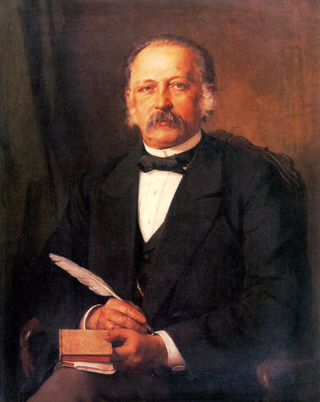 3
Theodor Fontane was a German novelist and poet, regarded by many as the most important 19th-century German-language realist author. Fontane is known as a writer of realism, not only because he was...
3
Theodor Fontane was a German novelist and poet, regarded by many as the most important 19th-century German-language realist author. Fontane is known as a writer of realism, not only because he was...
Franz Baermann Steiner
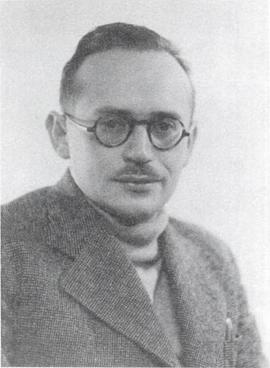 3
Franz Baermann Steiner was an ethnologist, polymath, essayist, aphorist, and poet. He was familiar, apart from German, Yiddish, Czech, Greek and Latin, with both classical and modern Arabic, Hebrew,...
3
Franz Baermann Steiner was an ethnologist, polymath, essayist, aphorist, and poet. He was familiar, apart from German, Yiddish, Czech, Greek and Latin, with both classical and modern Arabic, Hebrew,...
Rothschild family
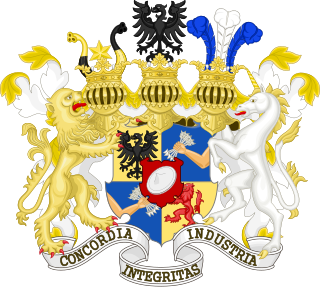 3
The Rothschild family is a wealthy Ashkenazi Jewish noble banking family originally from Frankfurt that rose to prominence with Mayer Amschel Rothschild (1744–1812), a court factor to the German...
3
The Rothschild family is a wealthy Ashkenazi Jewish noble banking family originally from Frankfurt that rose to prominence with Mayer Amschel Rothschild (1744–1812), a court factor to the German...
Franz Xaver Müller
 3
Franz Xaver Müller CanReg war ein österreichischer Komponist, Priester und Domkapellmeister.
3
Franz Xaver Müller CanReg war ein österreichischer Komponist, Priester und Domkapellmeister.
Severinus of Noricum
 3
Severinus of Noricum is a saint, known as the "Apostle to Noricum". It has been speculated that he was born in either Southern Italy or in the Roman province of Africa. Severinus himself refused to...
3
Severinus of Noricum is a saint, known as the "Apostle to Noricum". It has been speculated that he was born in either Southern Italy or in the Roman province of Africa. Severinus himself refused to...
Anton Müller (Schriftsteller)
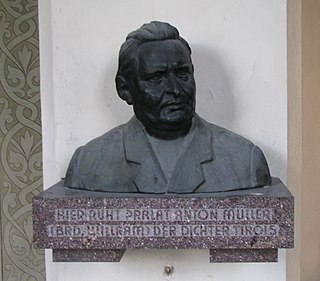 3
Anton Müller, besser bekannt unter dem Pseudonym Bruder Willram, war ein Tiroler Schriftsteller und Priester. Sein Werk umfasst vor allem Heimatgedichte und katholische Literatur.
3
Anton Müller, besser bekannt unter dem Pseudonym Bruder Willram, war ein Tiroler Schriftsteller und Priester. Sein Werk umfasst vor allem Heimatgedichte und katholische Literatur.
Guglielmo Marconi
 3
Guglielmo Giovanni Maria Marconi, 1st Marquis of Marconi was an Italian inventor and electrical engineer, known for his creation of a practical radio wave–based wireless telegraph system. This led to...
3
Guglielmo Giovanni Maria Marconi, 1st Marquis of Marconi was an Italian inventor and electrical engineer, known for his creation of a practical radio wave–based wireless telegraph system. This led to...
Anna Maria Dengel
 3
Mother Anna Maria Dengel, Medical Mission Sisters (S.C.M.M.), was an Austrian physician, Religious Sister and missionary. She was the founder of the Medical Mission Sisters, which was among the first...
3
Mother Anna Maria Dengel, Medical Mission Sisters (S.C.M.M.), was an Austrian physician, Religious Sister and missionary. She was the founder of the Medical Mission Sisters, which was among the first...
Georg Kropp
 3
Georg Kropp was a German journalist and polymath. In 1921, with Mathilde Planck, he co-founded the Gemeinschaft der Freunde (GdF) which a few years later became recognised as Germany's first mutual...
3
Georg Kropp was a German journalist and polymath. In 1921, with Mathilde Planck, he co-founded the Gemeinschaft der Freunde (GdF) which a few years later became recognised as Germany's first mutual...
Ulrich of Augsburg
 3
Ulrich of Augsburg, sometimes spelled Uodalric or Odalrici, was Prince-Bishop of Augsburg in the Holy Roman Empire. He was the first saint to be canonized not by a local authority but by the pope.
3
Ulrich of Augsburg, sometimes spelled Uodalric or Odalrici, was Prince-Bishop of Augsburg in the Holy Roman Empire. He was the first saint to be canonized not by a local authority but by the pope.
Rudolf Wondracek
 3
Rudolf Wondracek war ein österreichischer Architekt, Schüler von Otto Wagner und Hochbaureferent in St. Pölten.
3
Rudolf Wondracek war ein österreichischer Architekt, Schüler von Otto Wagner und Hochbaureferent in St. Pölten.
Saint Lawrence
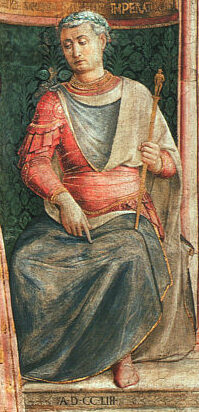 3
Saint Lawrence or Laurence was one of the seven deacons of the city of Rome under Pope Sixtus II who were martyred in the persecution of the Christians that the Roman Emperor Valerian ordered in 258.
3
Saint Lawrence or Laurence was one of the seven deacons of the city of Rome under Pope Sixtus II who were martyred in the persecution of the Christians that the Roman Emperor Valerian ordered in 258.
Lise Meitner
 3
Lise Meitner was an Austrian-Swedish physicist who was one of those responsible for the discovery of the element protactinium and nuclear fission. While working on radioactivity at the Kaiser Wilhelm...
3
Lise Meitner was an Austrian-Swedish physicist who was one of those responsible for the discovery of the element protactinium and nuclear fission. While working on radioactivity at the Kaiser Wilhelm...
Karl Beck (tenor)
 3
Karl Beck was an Austrian operatic tenor who is notable for creating the title role in Richard Wagner's opera Lohengrin in Weimar, Germany in 1850. He also sang the title role in Hector Berlioz's...
3
Karl Beck was an Austrian operatic tenor who is notable for creating the title role in Richard Wagner's opera Lohengrin in Weimar, Germany in 1850. He also sang the title role in Hector Berlioz's...
Anton Benya
 3
Anton Benya was an Austrian politician and trade unionist. He was President of the National Council from 1971 to 1986.
3
Anton Benya was an Austrian politician and trade unionist. He was President of the National Council from 1971 to 1986.
Franz von Suppé
 3
Franz von Suppé, born Francesco Ezechiele Ermenegildo de Suppé was an Austrian composer of light operas and other theatre music. He came from the Kingdom of Dalmatia, Austro-Hungarian Empire. A...
3
Franz von Suppé, born Francesco Ezechiele Ermenegildo de Suppé was an Austrian composer of light operas and other theatre music. He came from the Kingdom of Dalmatia, Austro-Hungarian Empire. A...
Pablo Picasso
 3
Pablo Ruiz Picasso was a Spanish painter, sculptor, printmaker, ceramicist, and theatre designer who spent most of his adult life in France. One of the most influential artists of the 20th century,...
3
Pablo Ruiz Picasso was a Spanish painter, sculptor, printmaker, ceramicist, and theatre designer who spent most of his adult life in France. One of the most influential artists of the 20th century,...
Anton Proksch
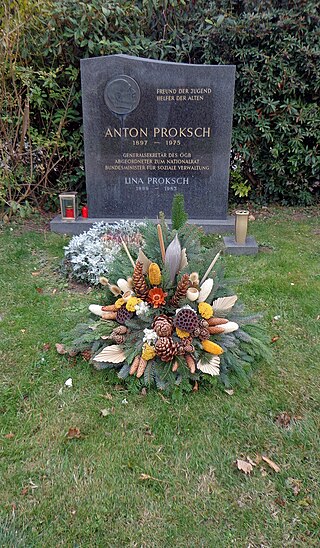 3
Anton Proksch war ein österreichischer Gewerkschafter und Politiker (SPÖ).
3
Anton Proksch war ein österreichischer Gewerkschafter und Politiker (SPÖ).
Martin Johann Schmidt
 3
Martin Johann Schmidt, called Kremser Schmidt or Kremserschmidt,, was one of the outstanding Austrian painters of the late Baroque/Rococo along with Franz Anton Maulbertsch.
3
Martin Johann Schmidt, called Kremser Schmidt or Kremserschmidt,, was one of the outstanding Austrian painters of the late Baroque/Rococo along with Franz Anton Maulbertsch.
Robert Blum
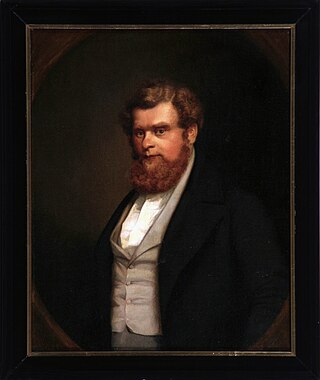 3
Robert Blum was a German democratic politician, publicist, poet, publisher, revolutionary and member of the National Assembly of 1848. In his fight for a strong, unified Germany he opposed...
3
Robert Blum was a German democratic politician, publicist, poet, publisher, revolutionary and member of the National Assembly of 1848. In his fight for a strong, unified Germany he opposed...
Thomas Klestil
 3
Thomas Klestil was an Austrian diplomat and politician who served as president of Austria from 1992 until his death in 2004. He was elected in 1992 and re-elected into office in 1998.
3
Thomas Klestil was an Austrian diplomat and politician who served as president of Austria from 1992 until his death in 2004. He was elected in 1992 and re-elected into office in 1998.
Theodor Kery
 3
Theodor Kery was an Austrian politician, who was the Governor of Burgenland (1966–1987).
3
Theodor Kery was an Austrian politician, who was the Governor of Burgenland (1966–1987).
Antonio Vivaldi
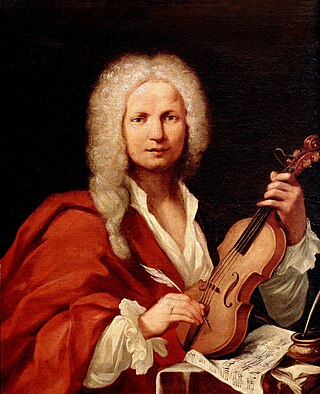 3
Antonio Lucio Vivaldi was an Italian composer, virtuoso violinist and impresario of Baroque music. Along with Johann Sebastian Bach and George Frideric Handel, Vivaldi ranks amongst the greatest...
3
Antonio Lucio Vivaldi was an Italian composer, virtuoso violinist and impresario of Baroque music. Along with Johann Sebastian Bach and George Frideric Handel, Vivaldi ranks amongst the greatest...
Andrew the Apostle
 3
Andrew the Apostle, also called Saint Andrew, was an apostle of Jesus. According to the New Testament, he was a fisherman and one of the Twelve Apostles chosen by Jesus. The title First-Called stems...
3
Andrew the Apostle, also called Saint Andrew, was an apostle of Jesus. According to the New Testament, he was a fisherman and one of the Twelve Apostles chosen by Jesus. The title First-Called stems...
Johanna Dorn-Fladerer
 3
Johanna Dorn, auch Johanna Dorn-Fladerer, war eine österreichische Malerin.
3
Johanna Dorn, auch Johanna Dorn-Fladerer, war eine österreichische Malerin.
Mary, mother of Jesus
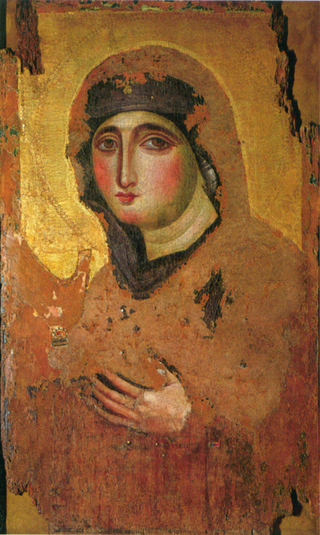 3
Mary was a first-century Jewish woman of Nazareth, the wife of Joseph and the mother of Jesus. She is a central figure of Christianity, venerated under various titles such as virgin or queen, many of...
3
Mary was a first-century Jewish woman of Nazareth, the wife of Joseph and the mother of Jesus. She is a central figure of Christianity, venerated under various titles such as virgin or queen, many of...
Franz Wiegele
 3
Franz Wiegele is an Austrian former ski jumper.
3
Franz Wiegele is an Austrian former ski jumper.
Theodor Innitzer
 3
Theodor Innitzer was Archbishop of Vienna and a cardinal of the Catholic Church.
3
Theodor Innitzer was Archbishop of Vienna and a cardinal of the Catholic Church.
Marianne Feldhammer
 3
Marianne "Mariandl" Feldhammer was an Austrian resistance activist during the Nazi years. She was one of the most important women in the "Willy-Fred" group around Sepp Plieseis. She was the only...
3
Marianne "Mariandl" Feldhammer was an Austrian resistance activist during the Nazi years. She was one of the most important women in the "Willy-Fred" group around Sepp Plieseis. She was the only...